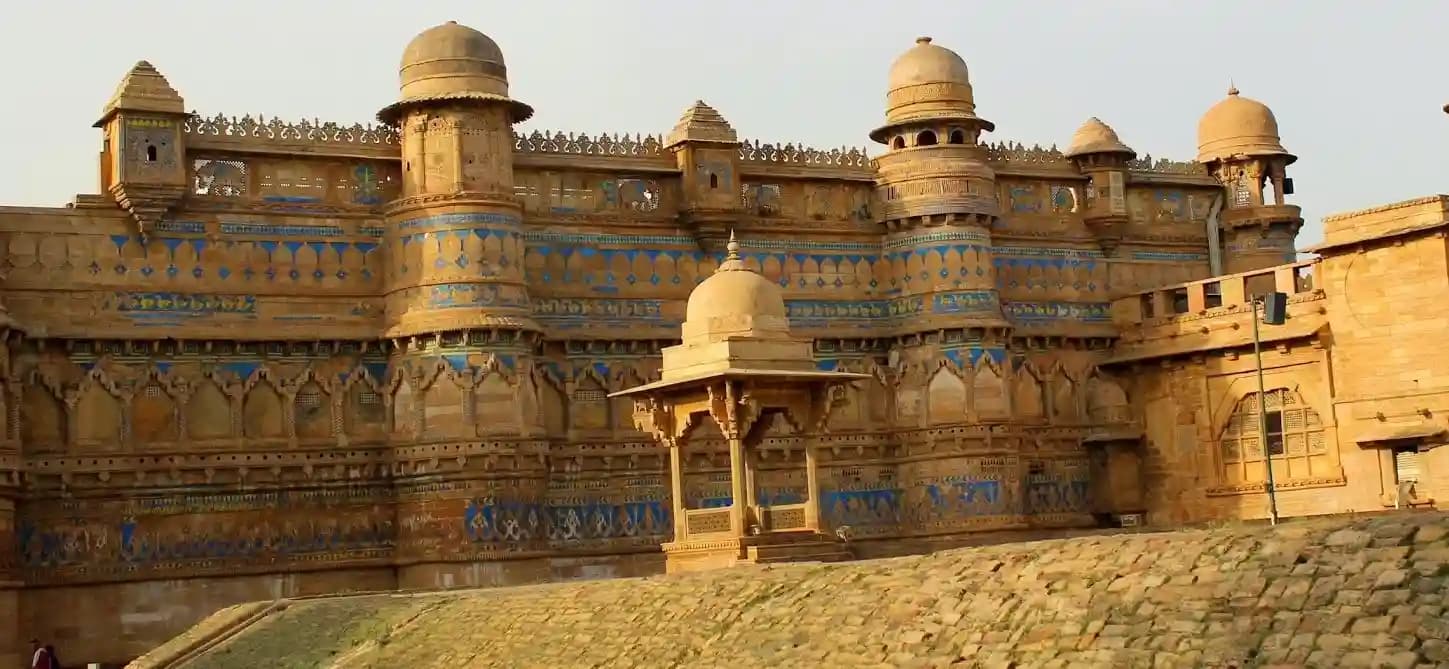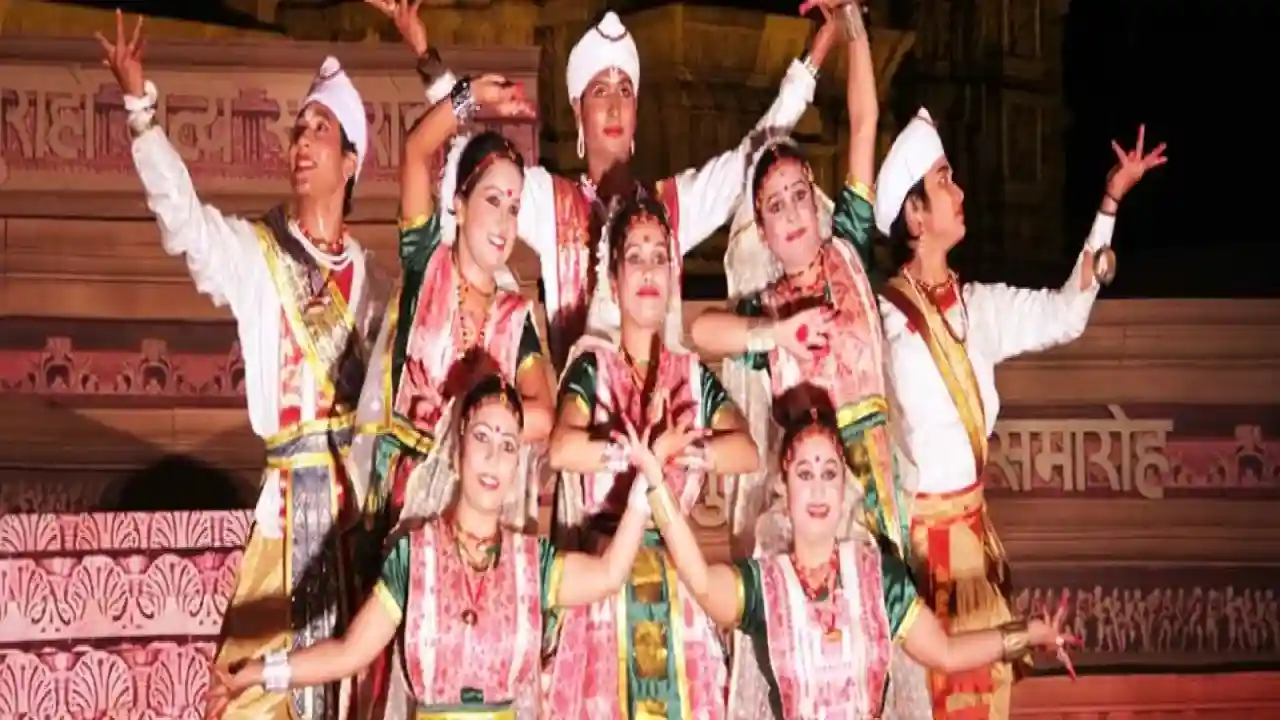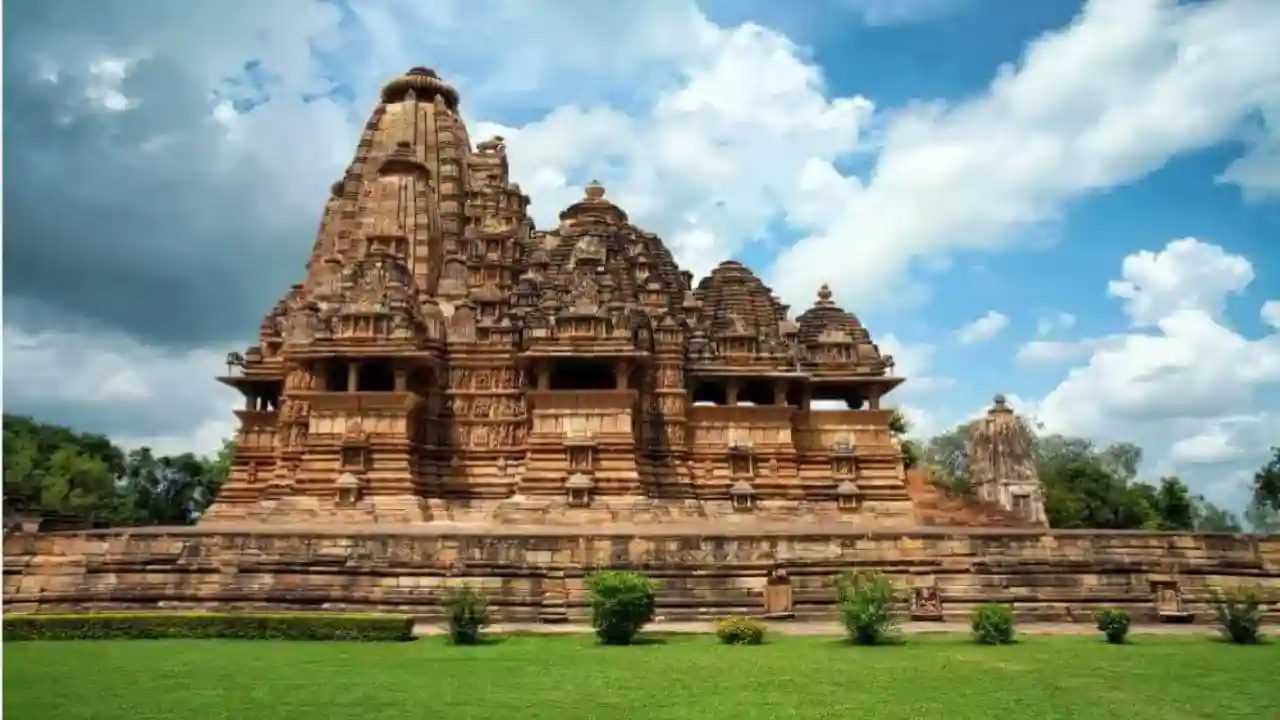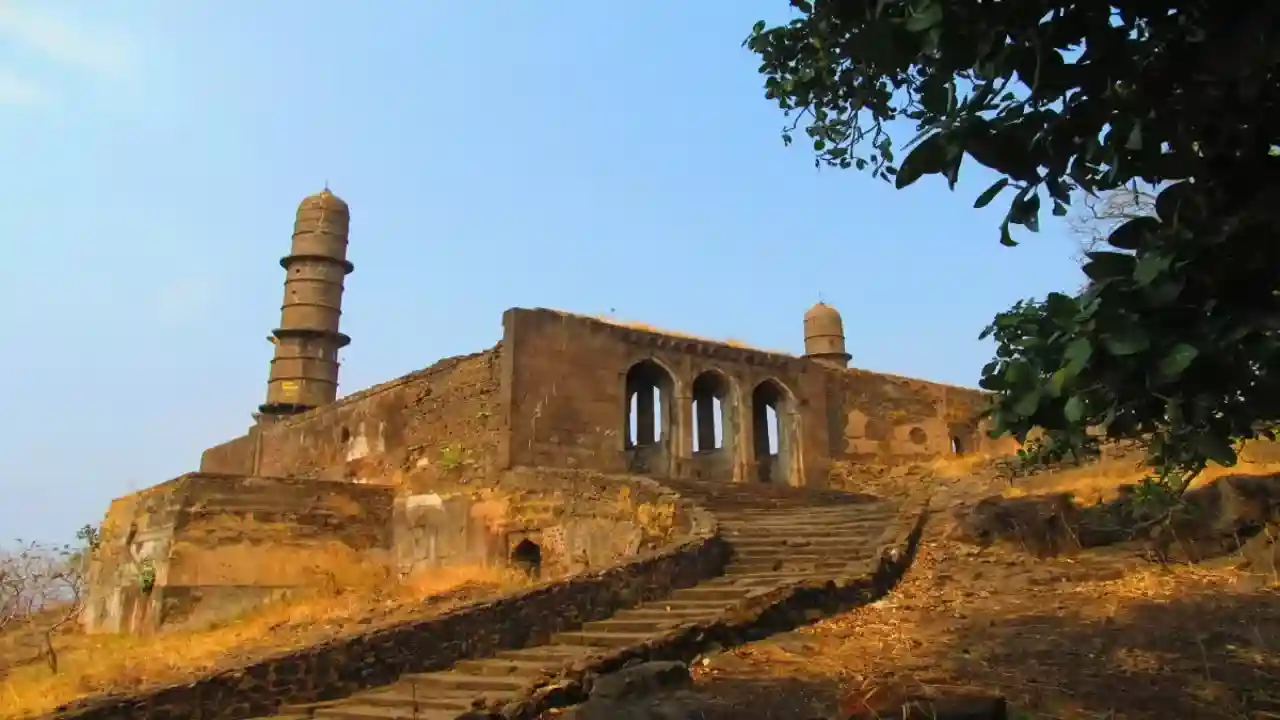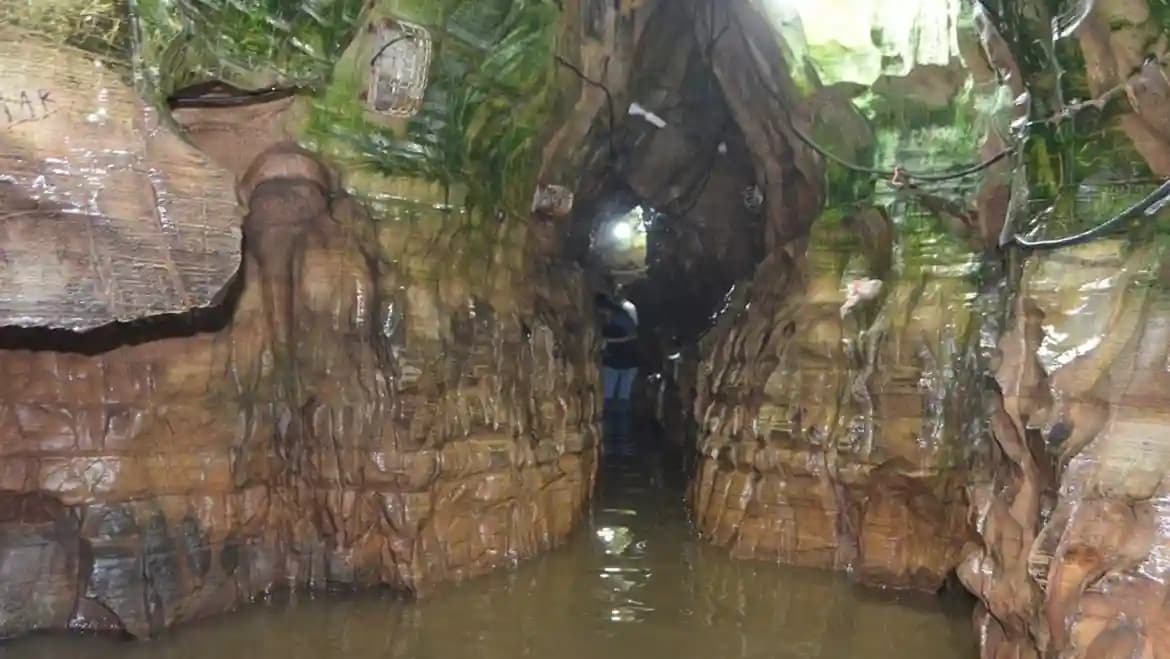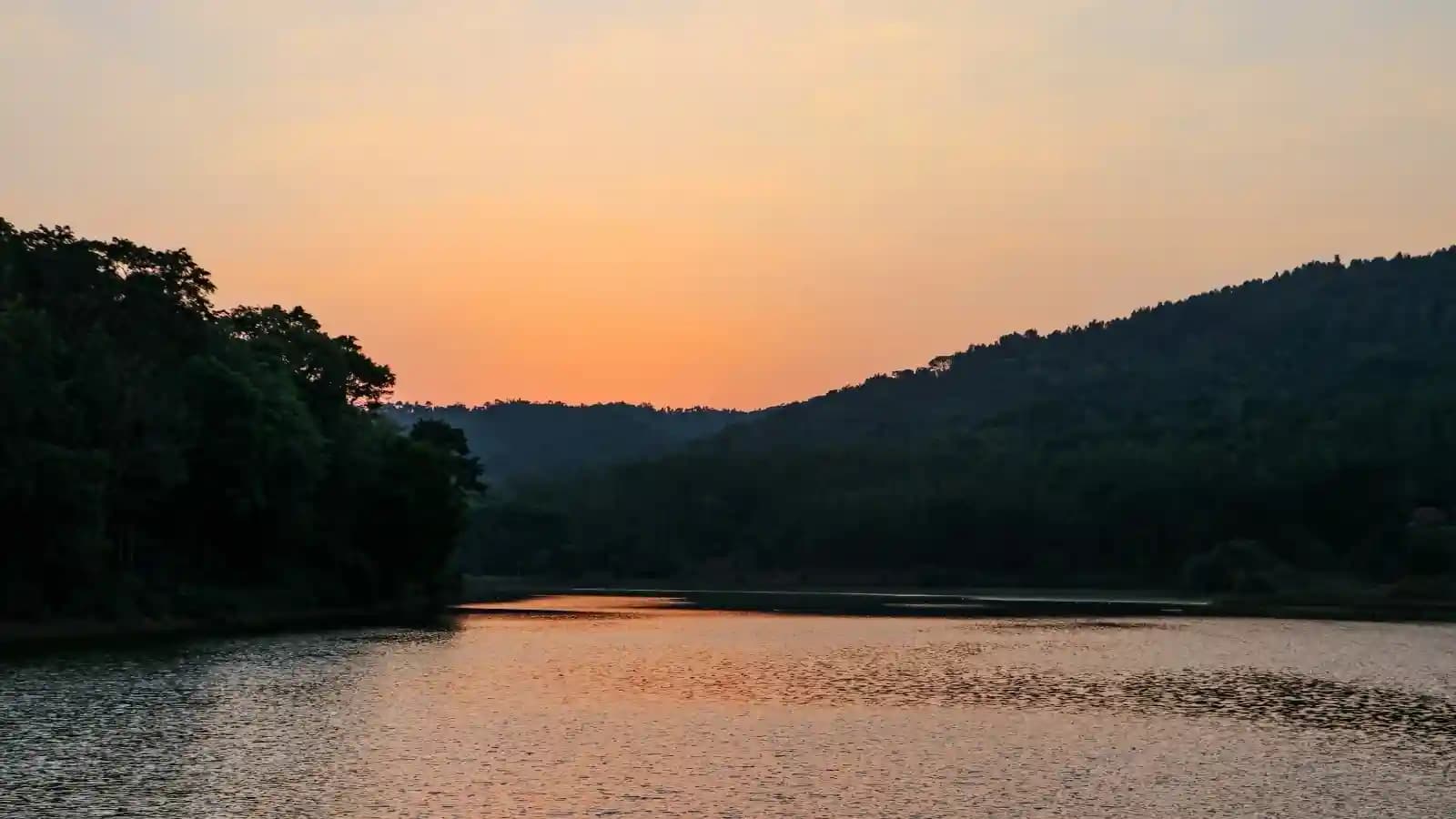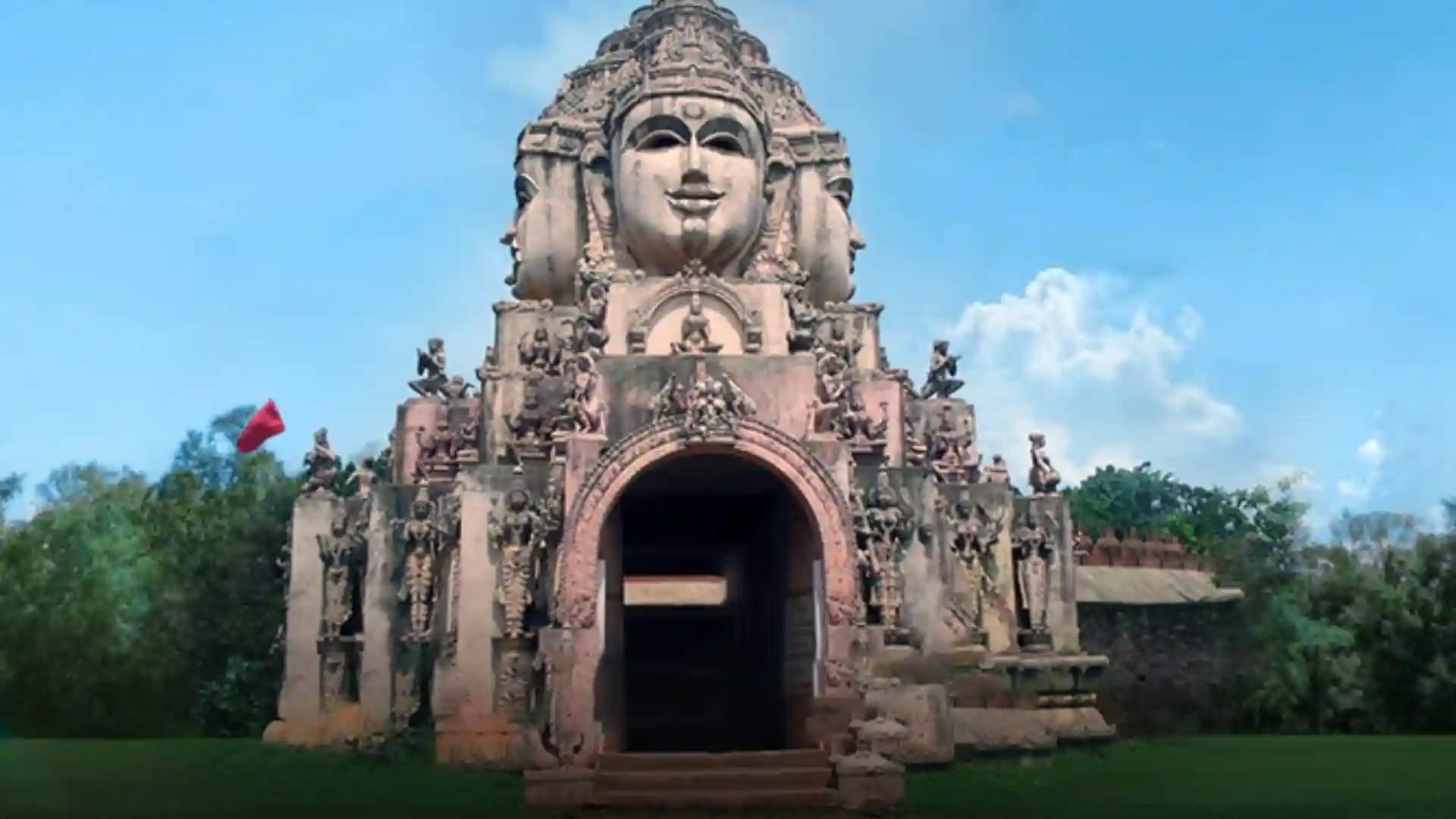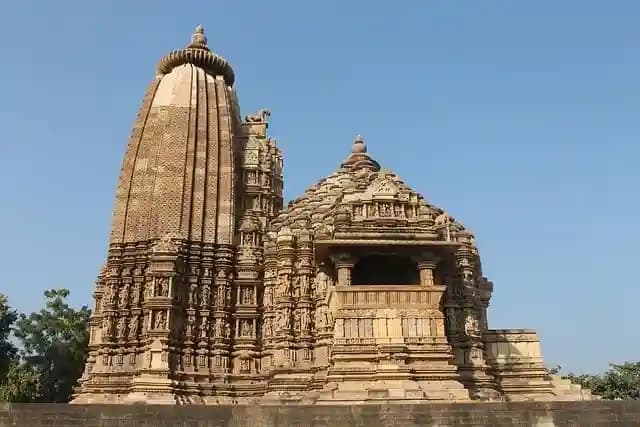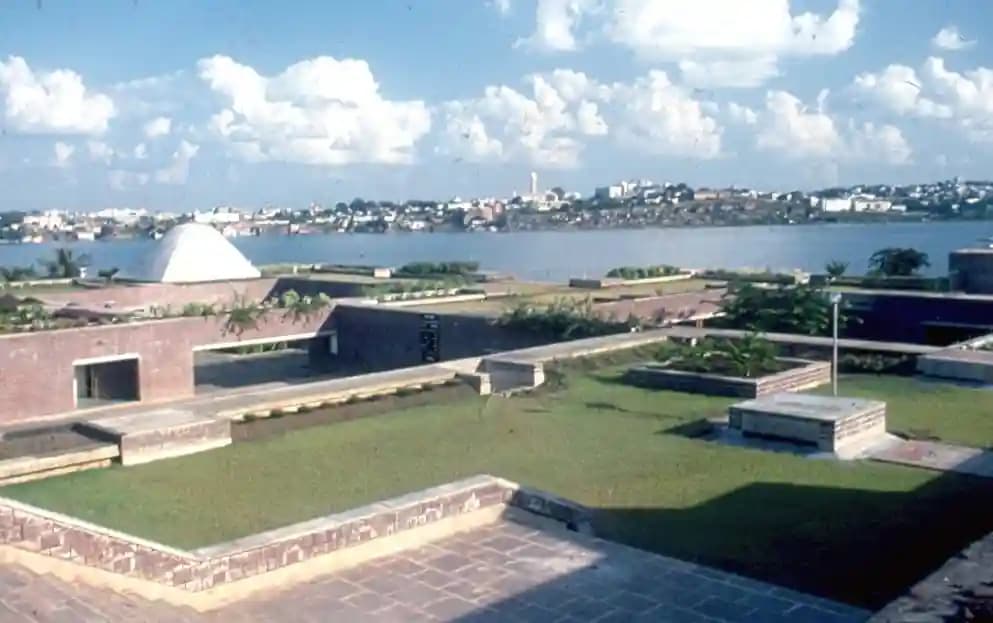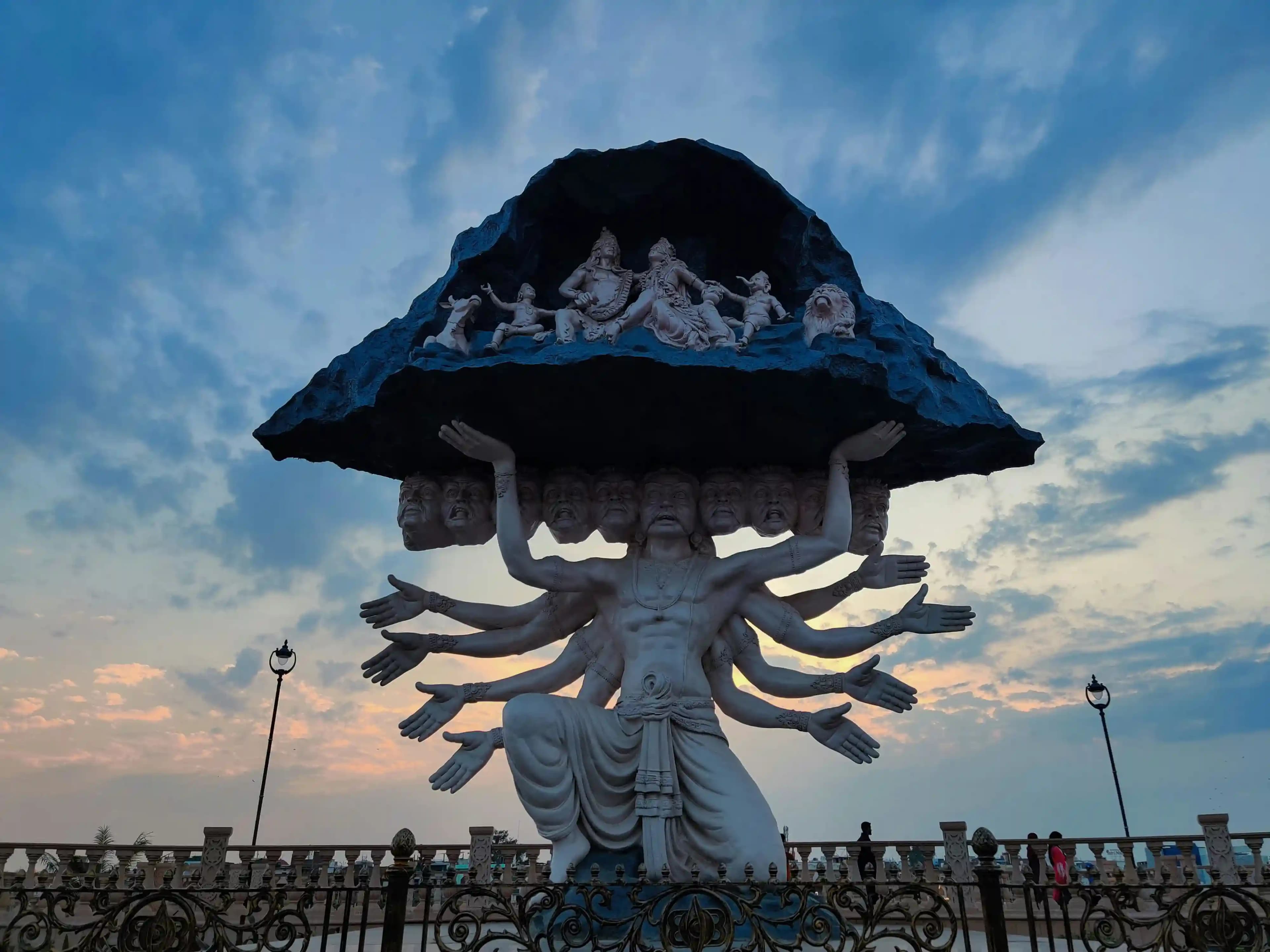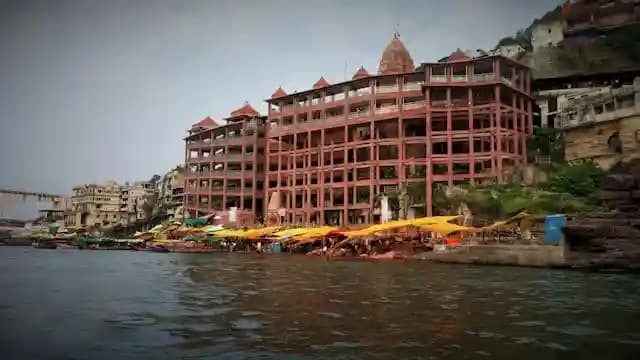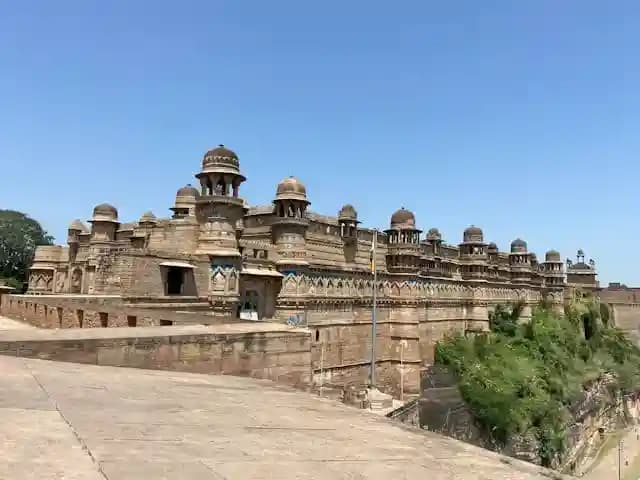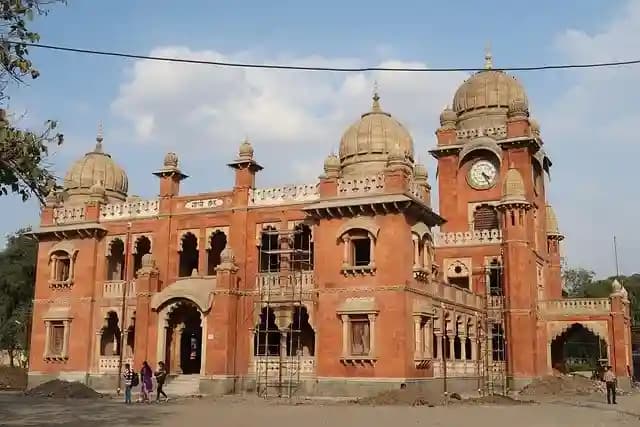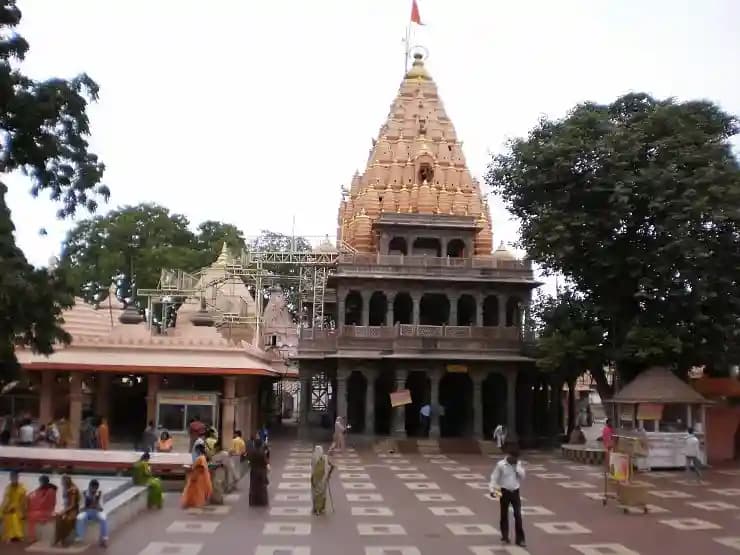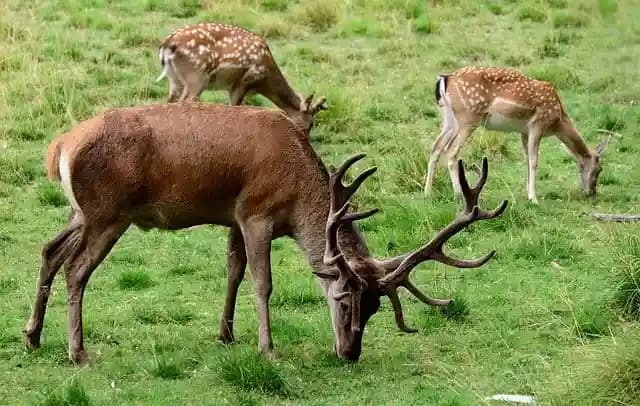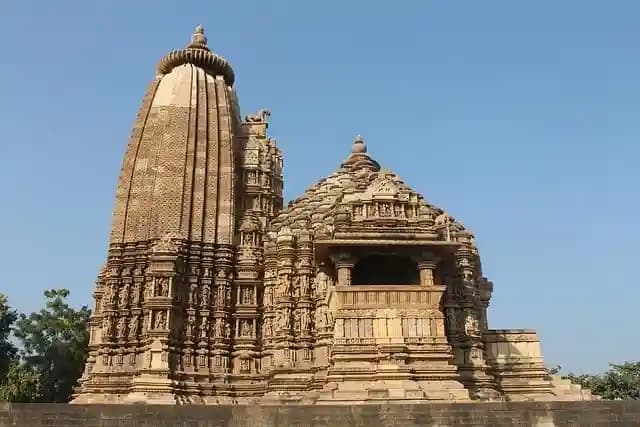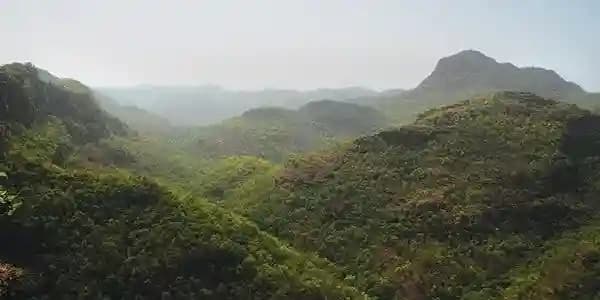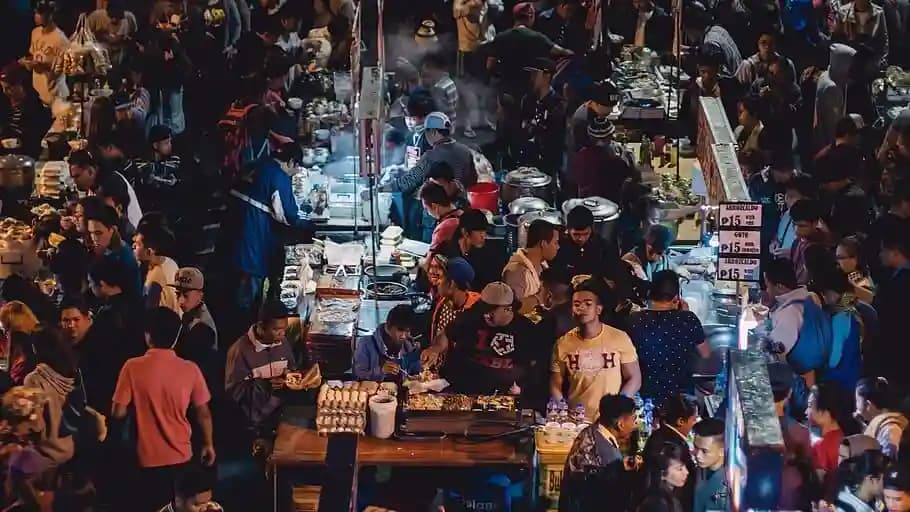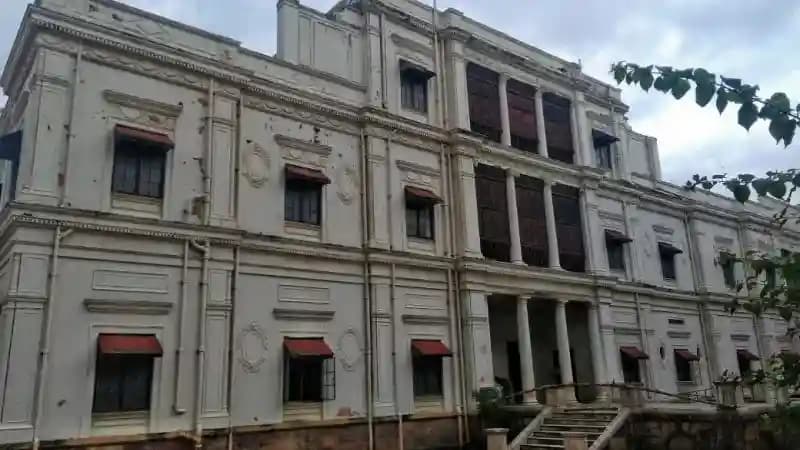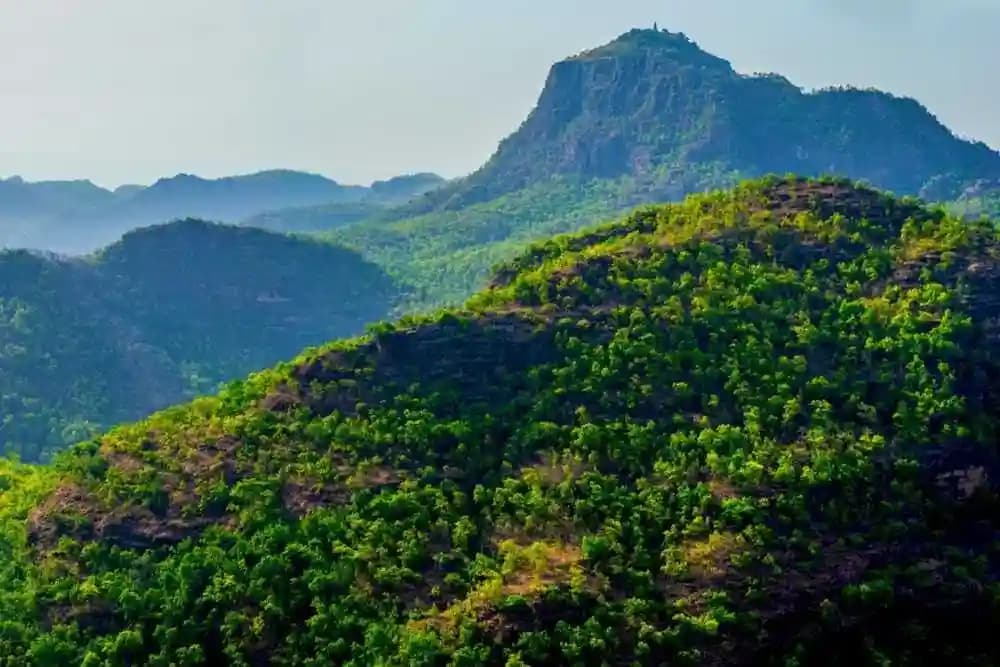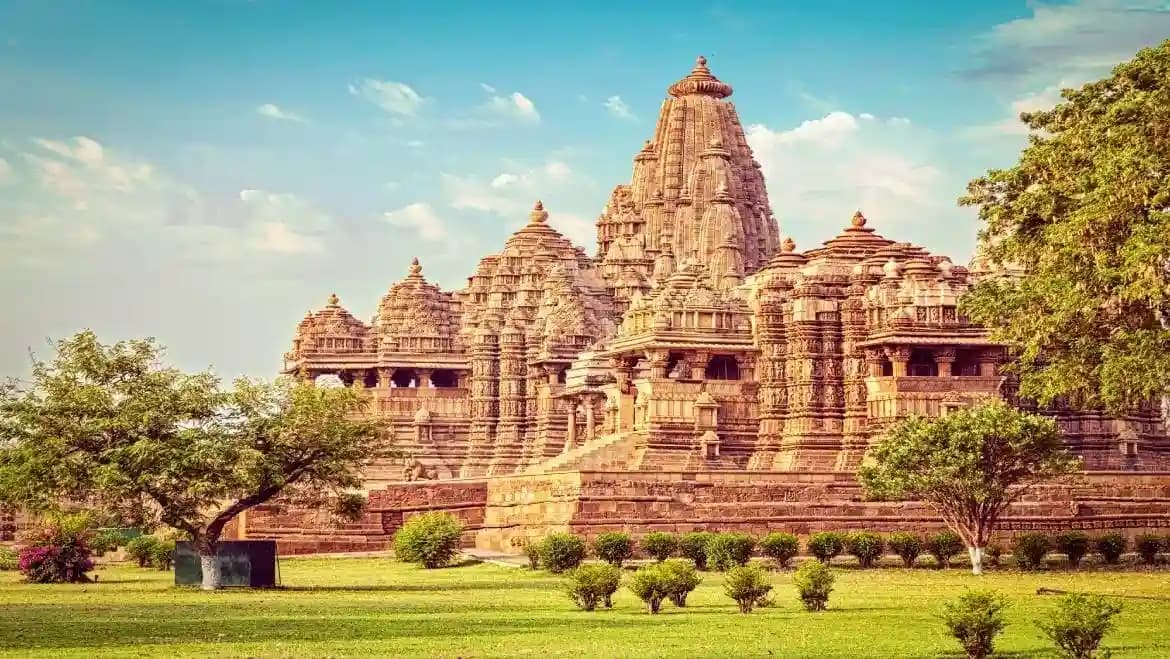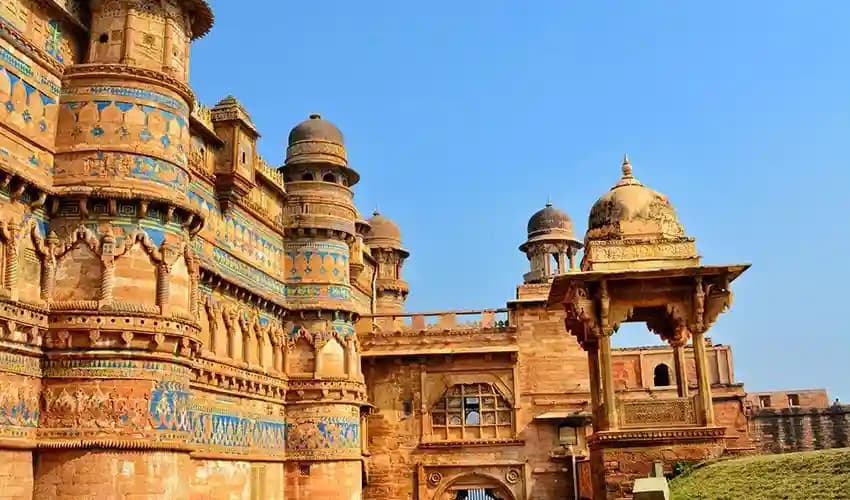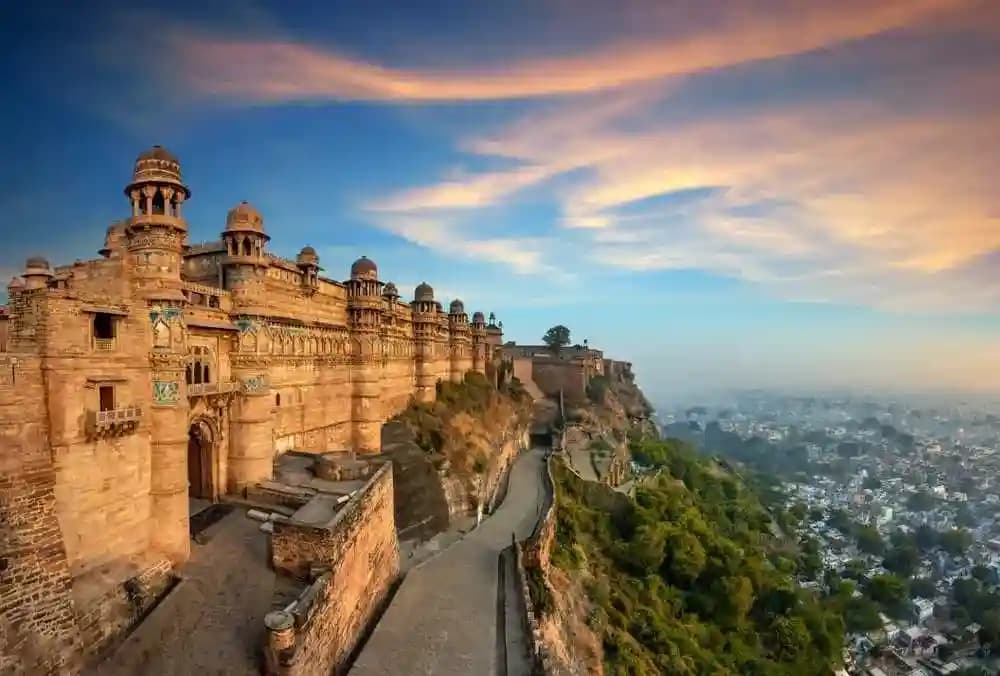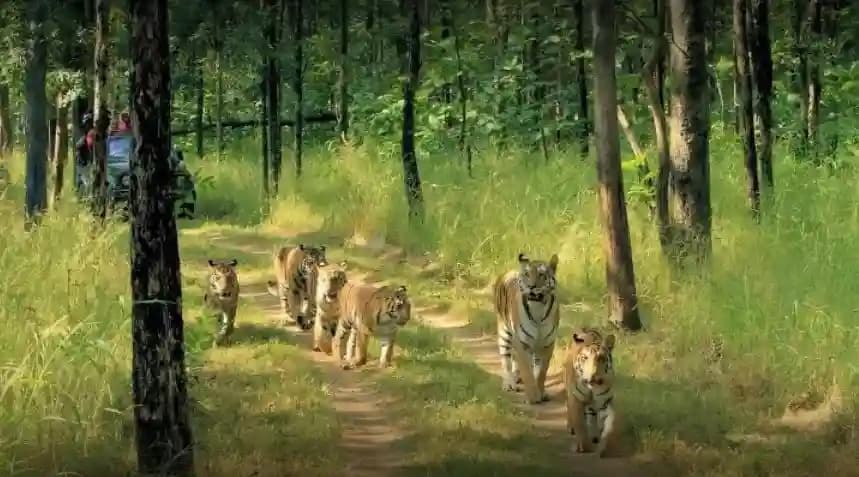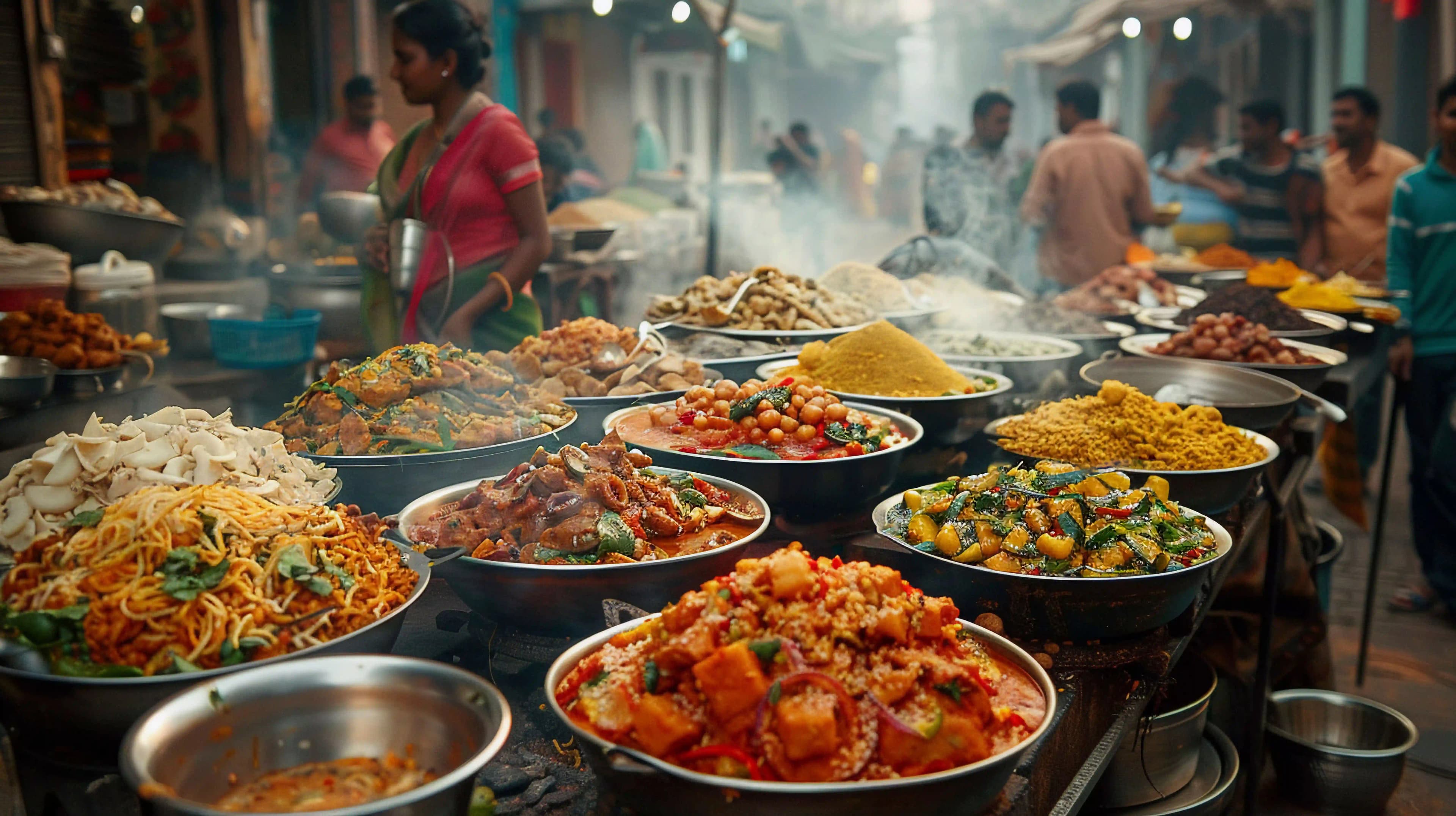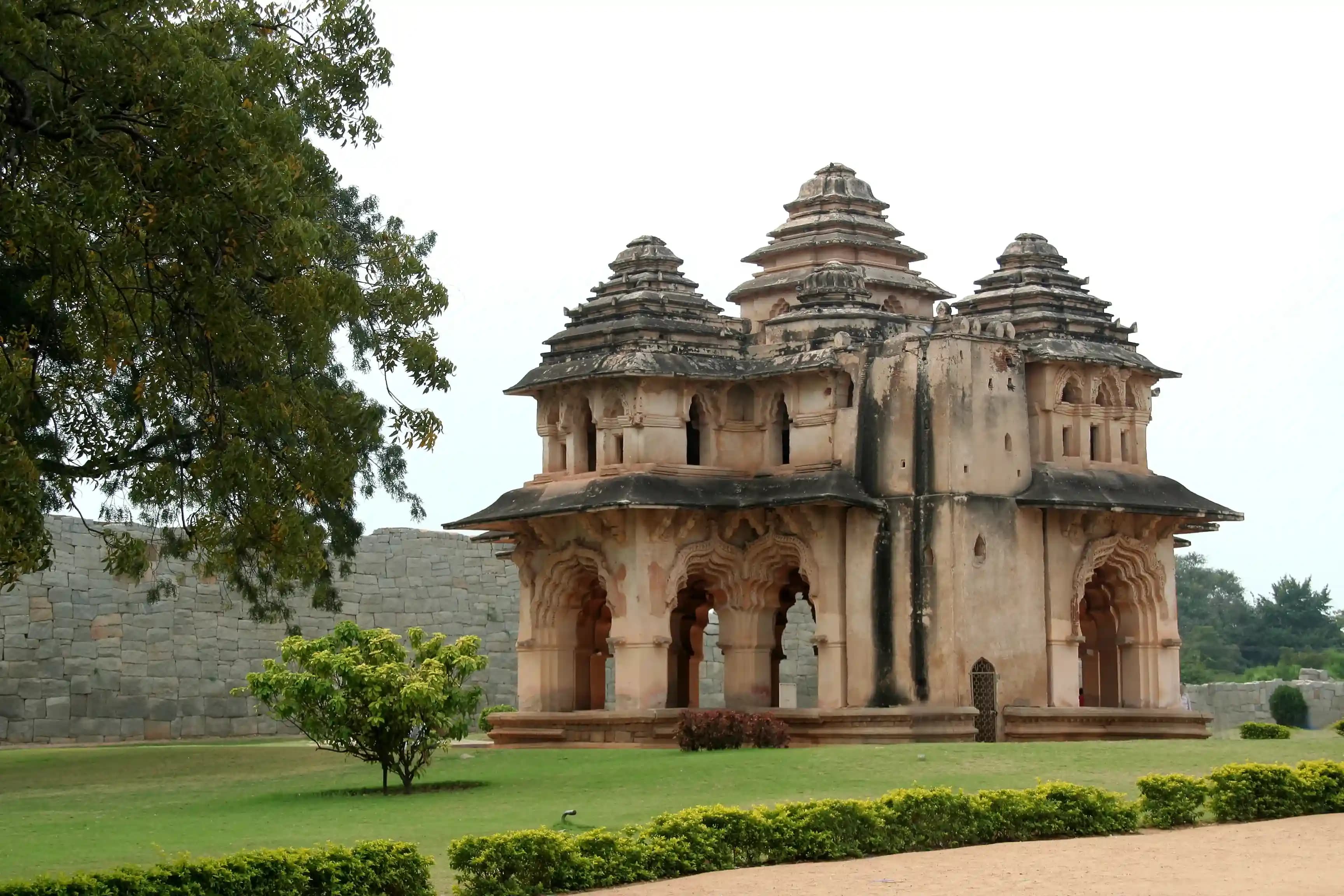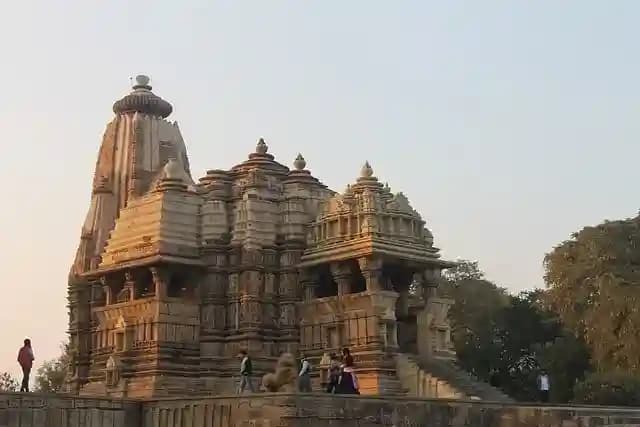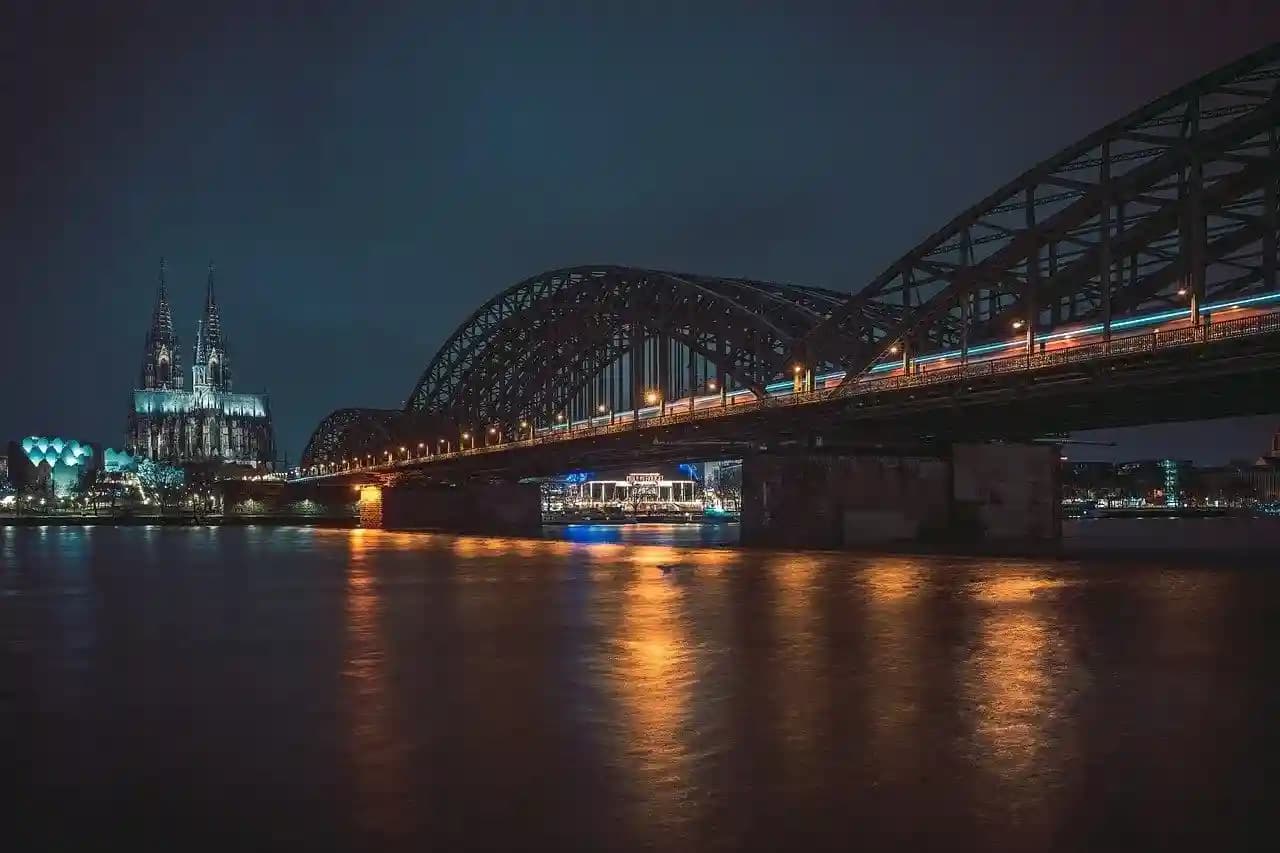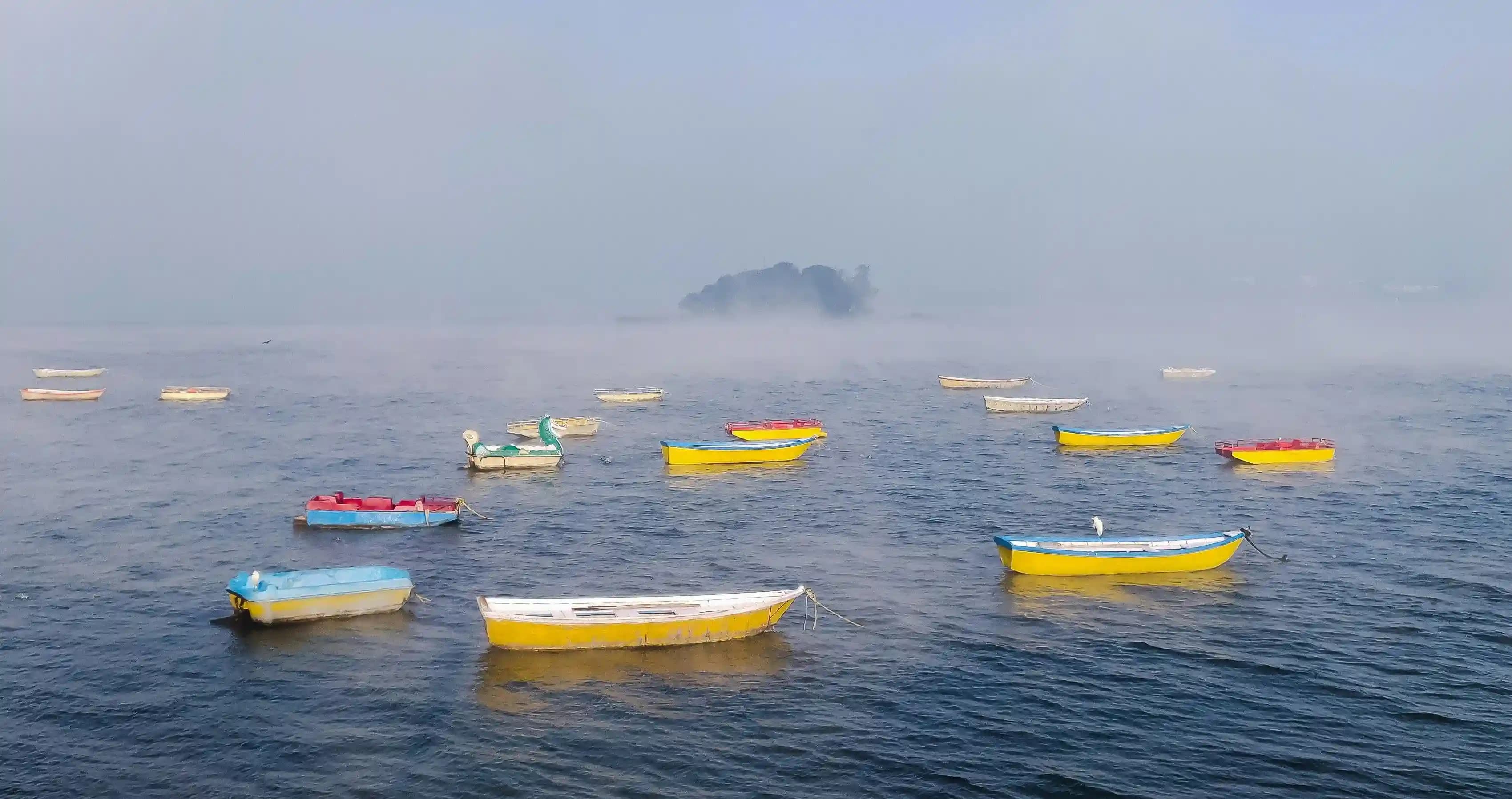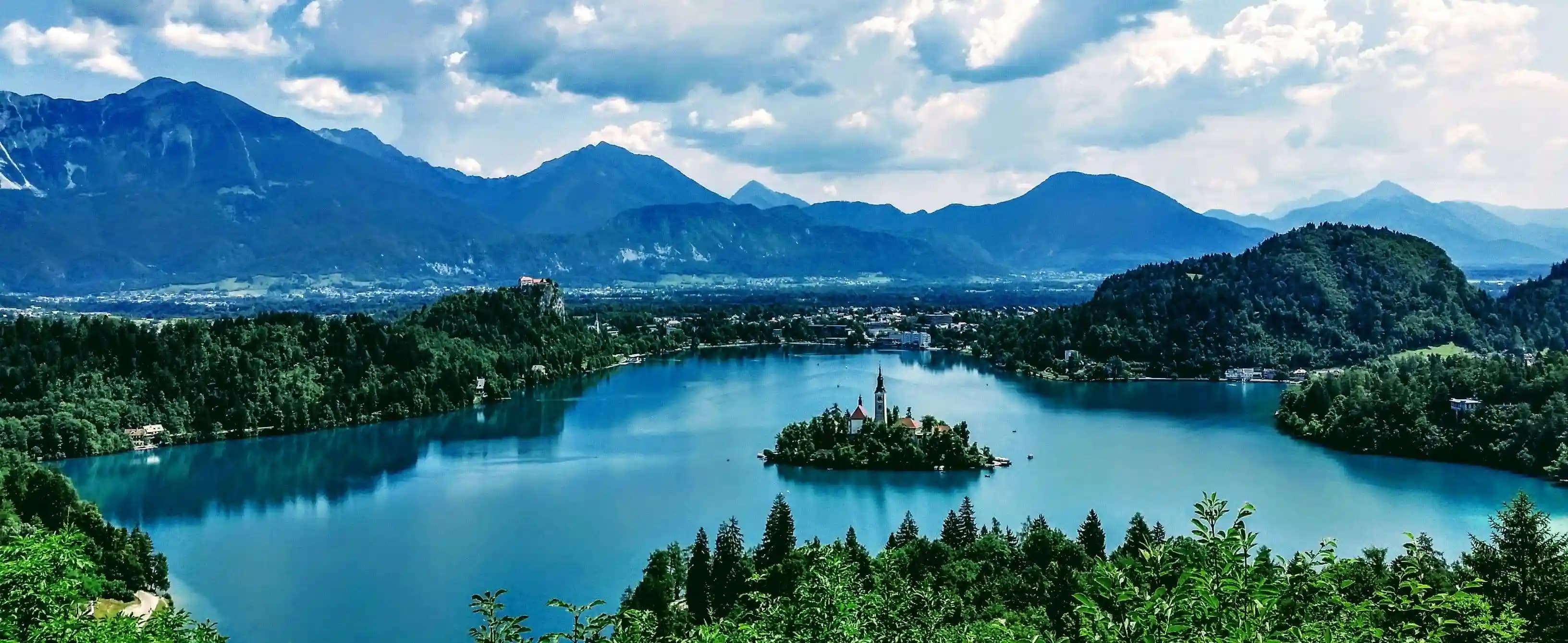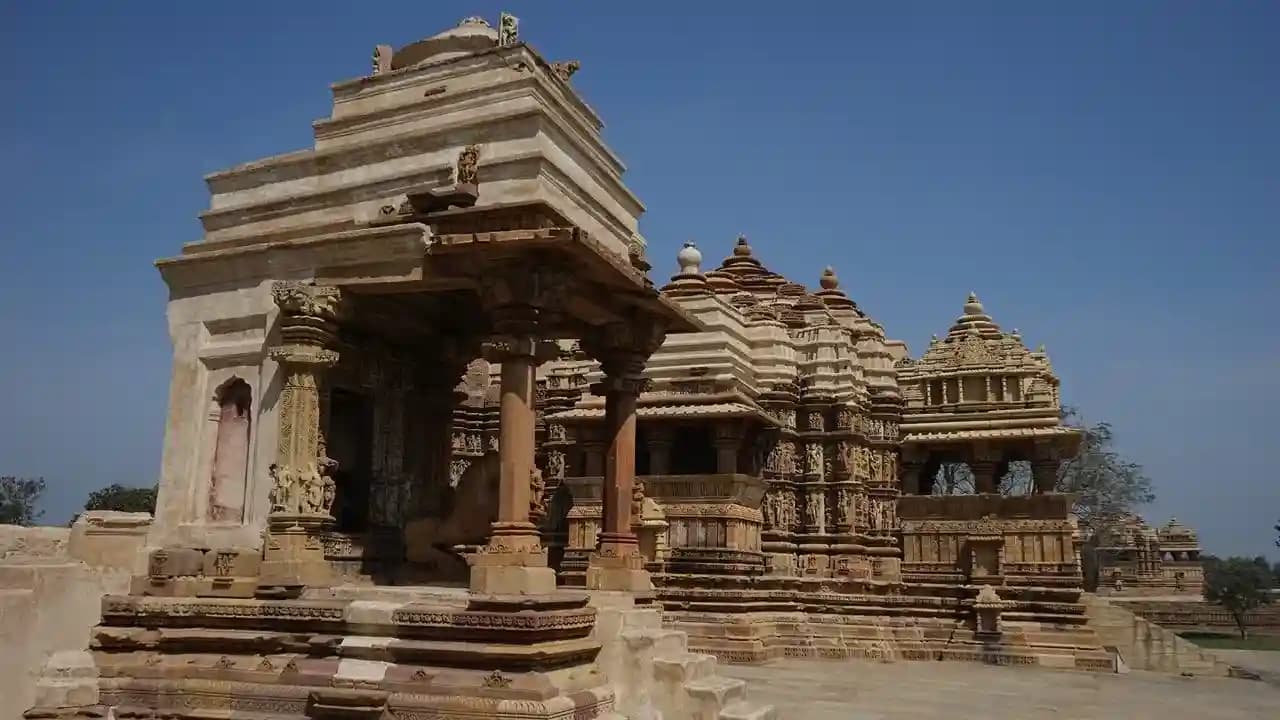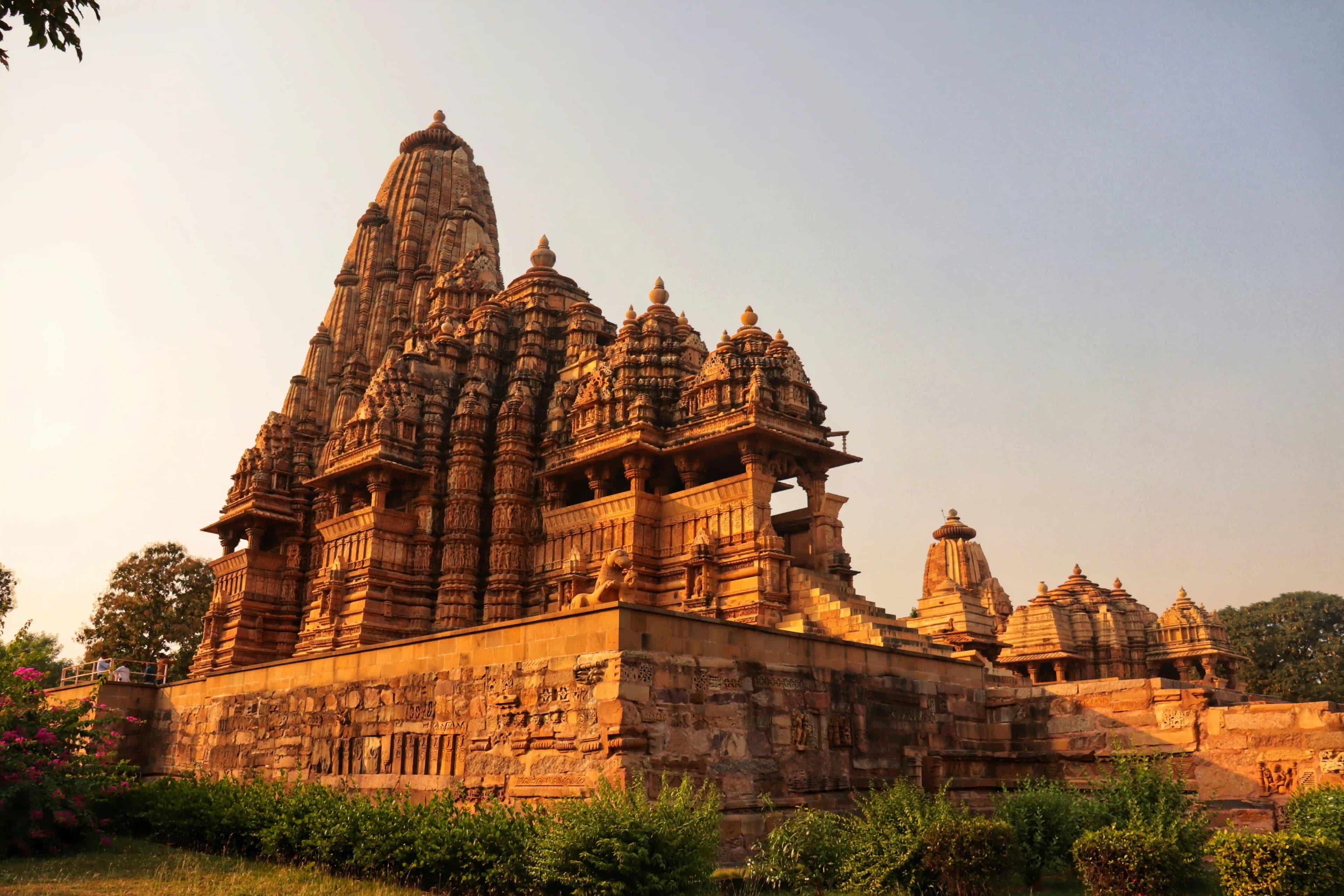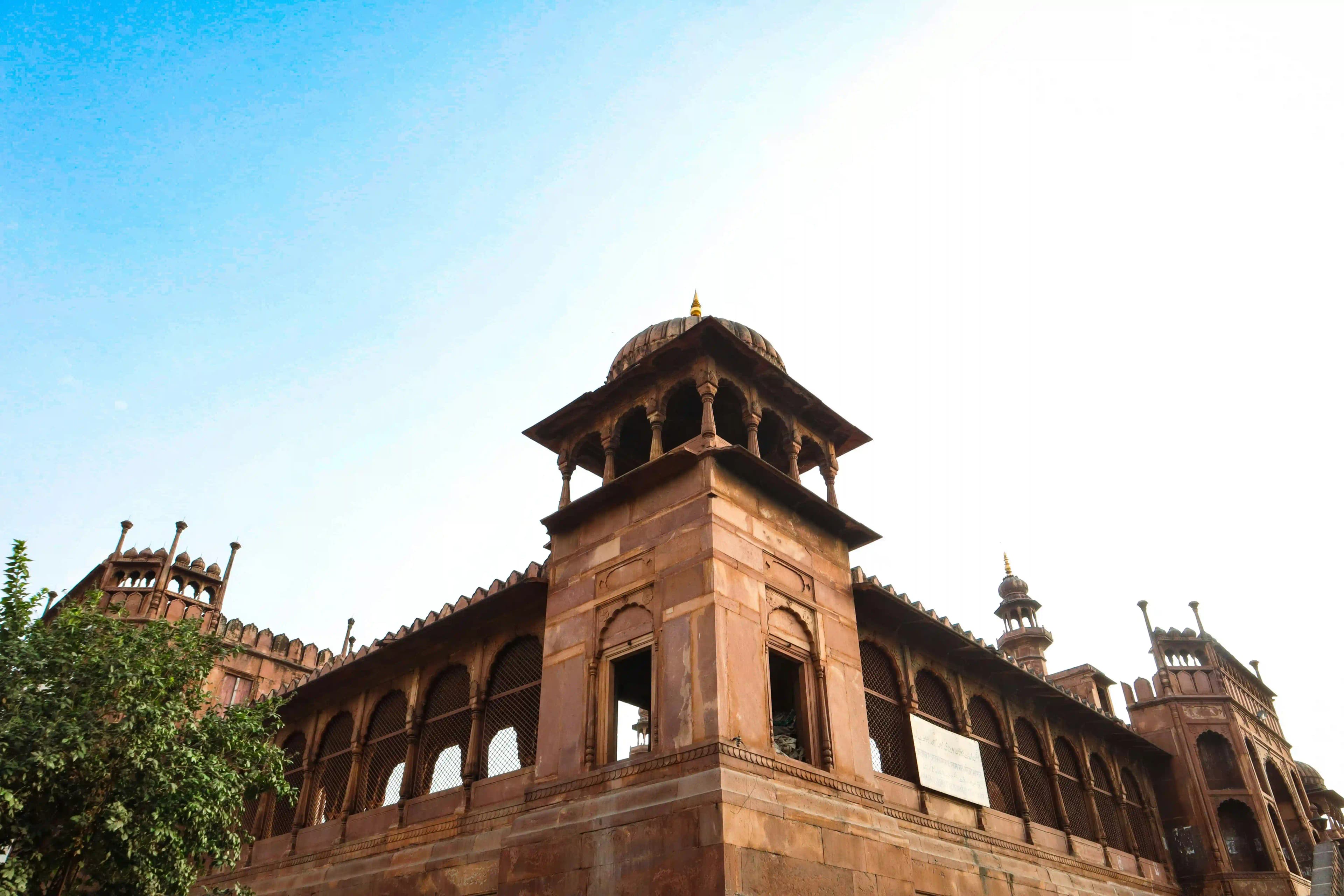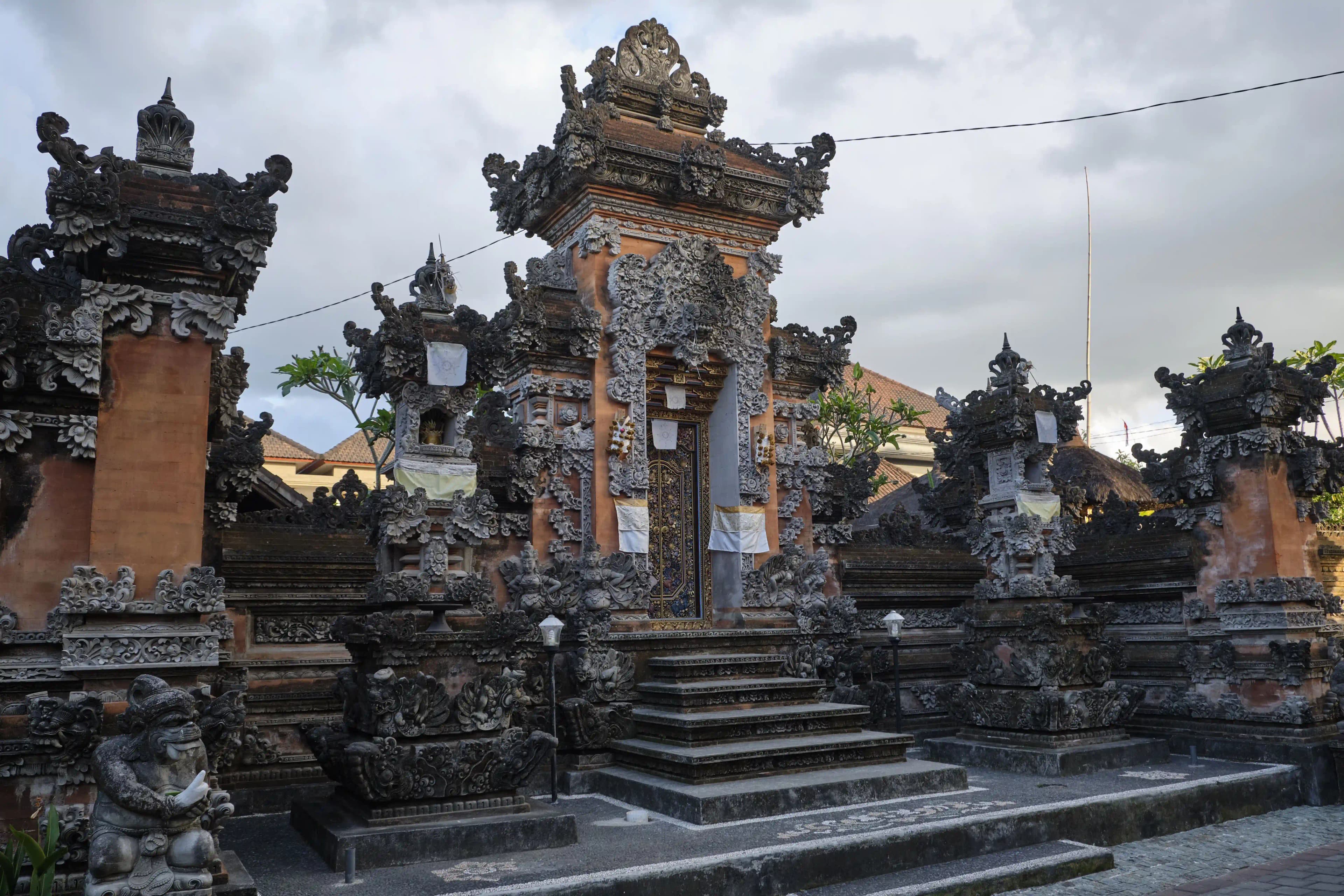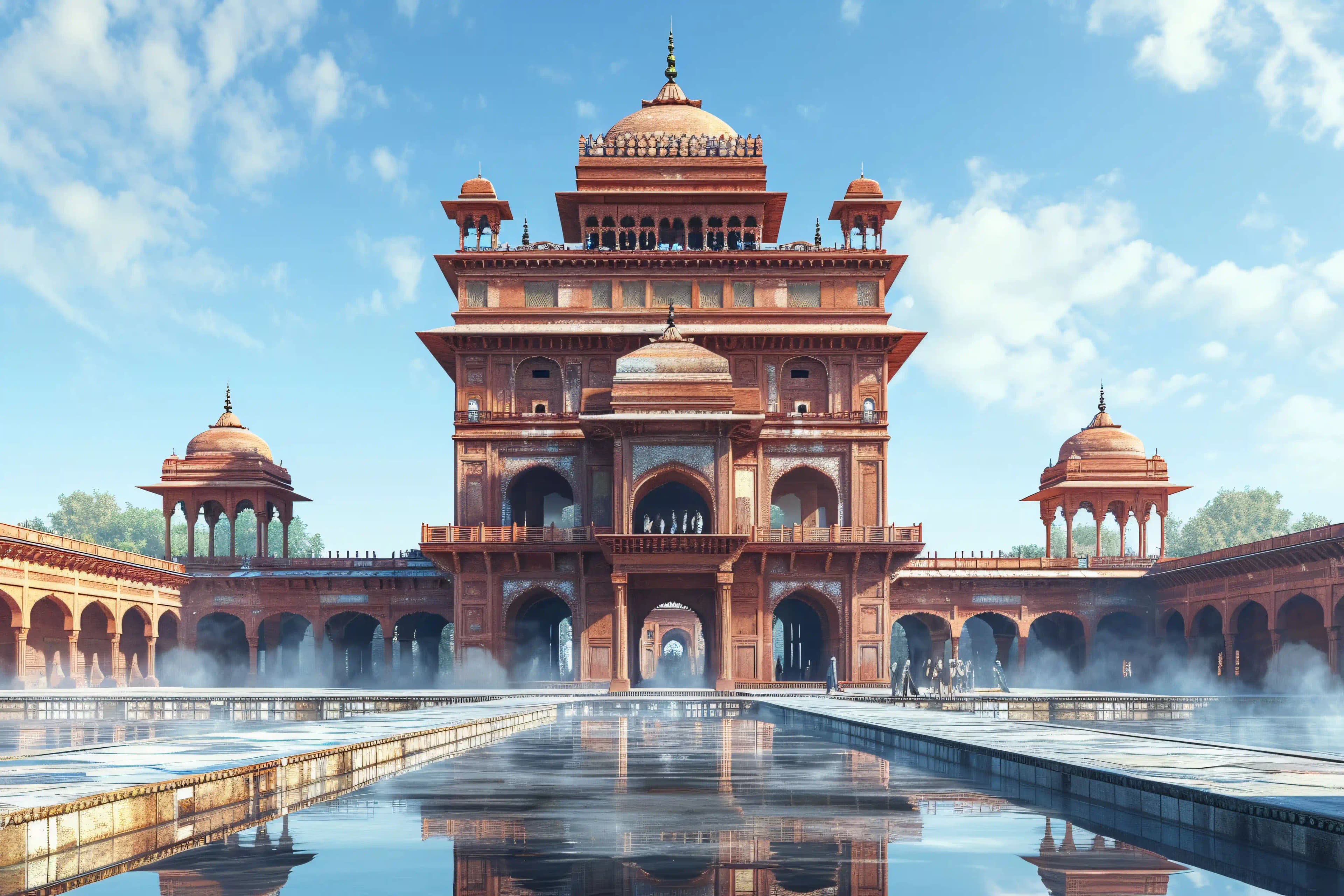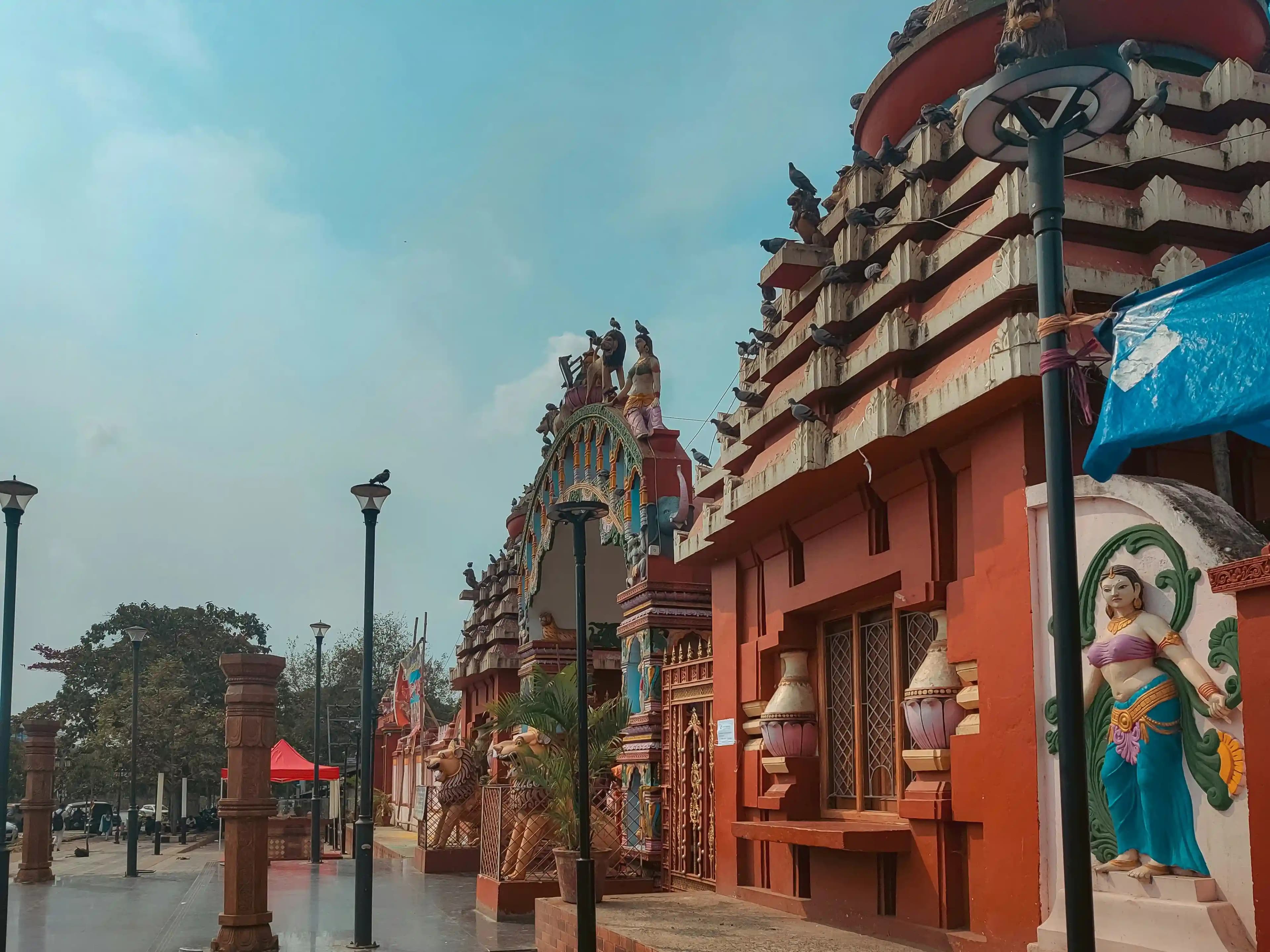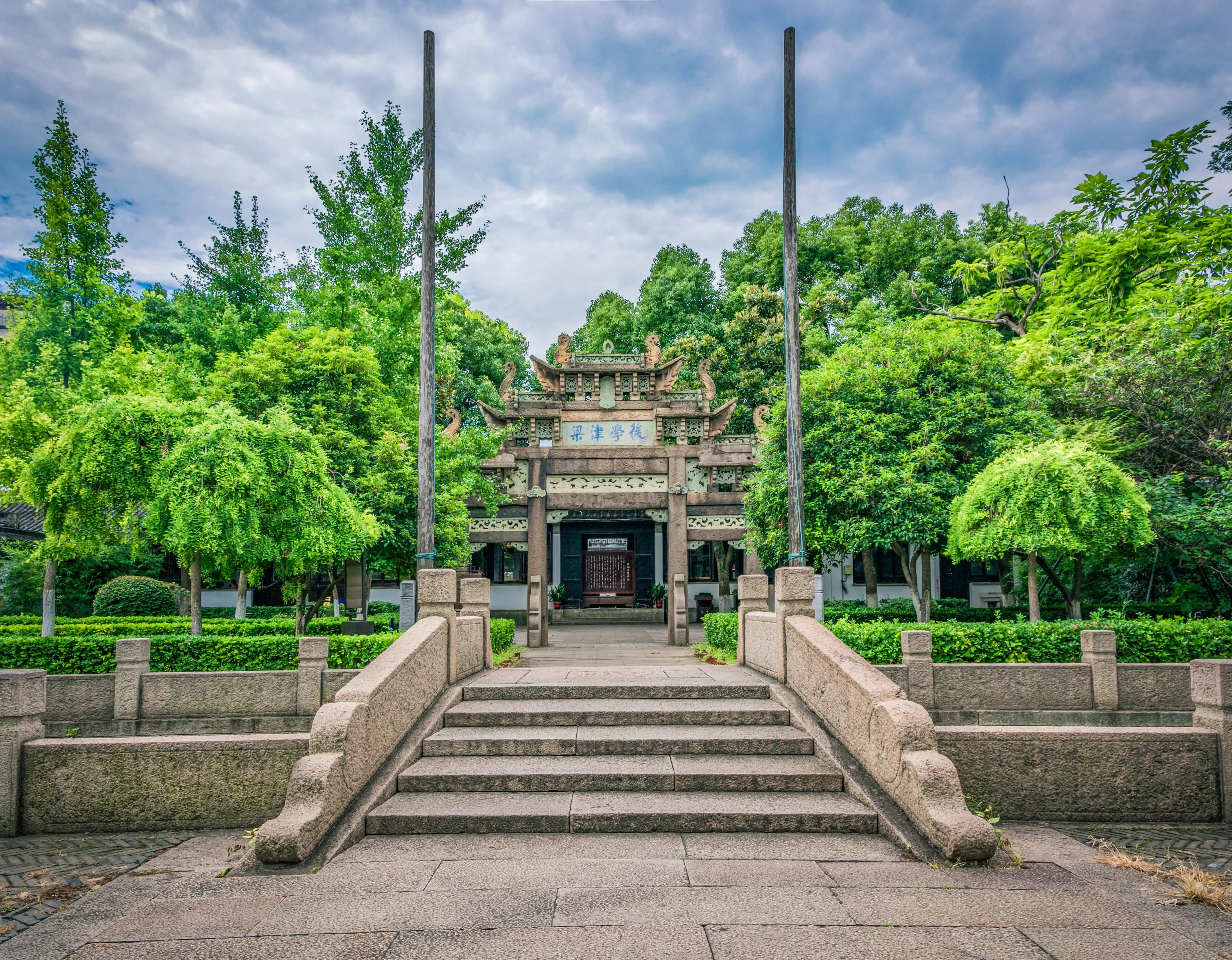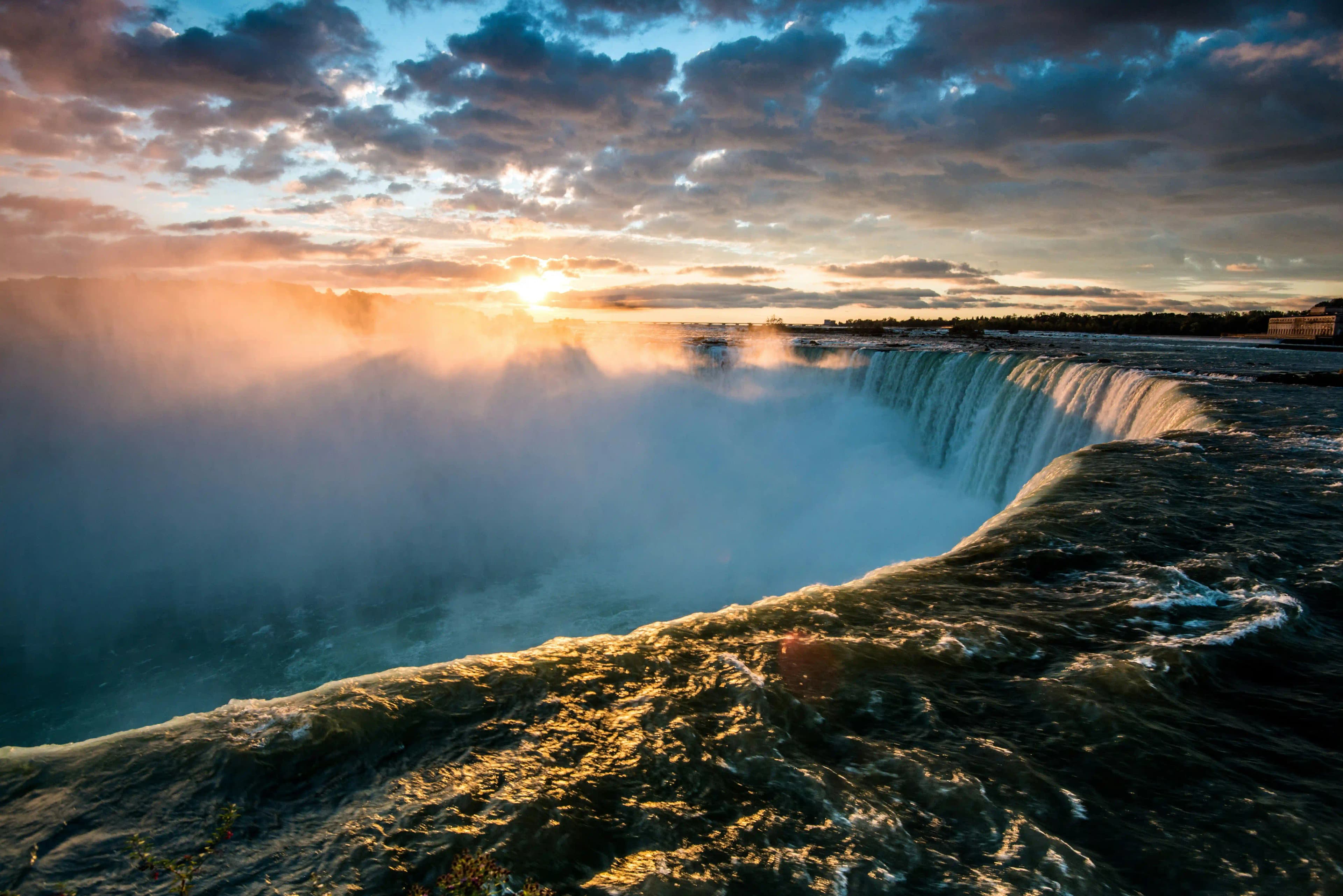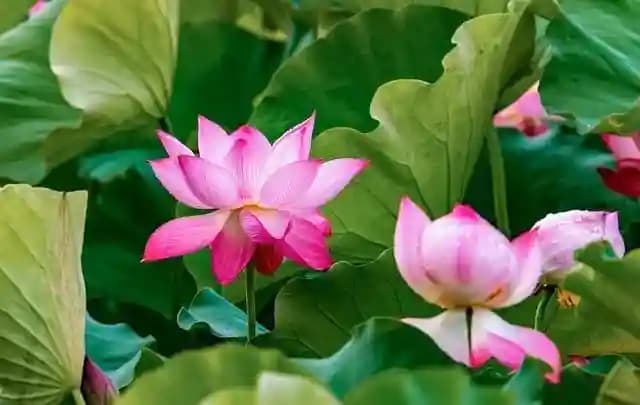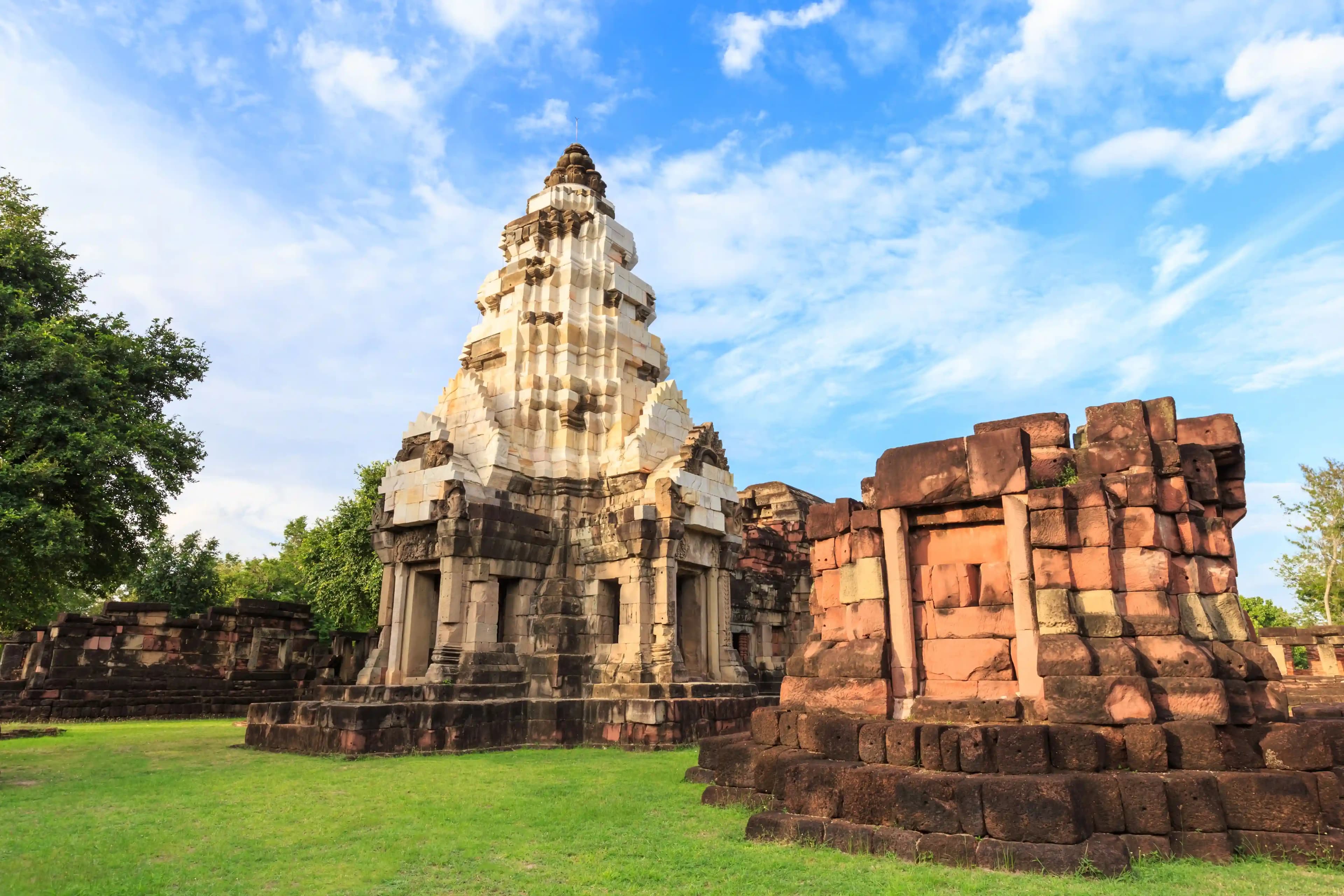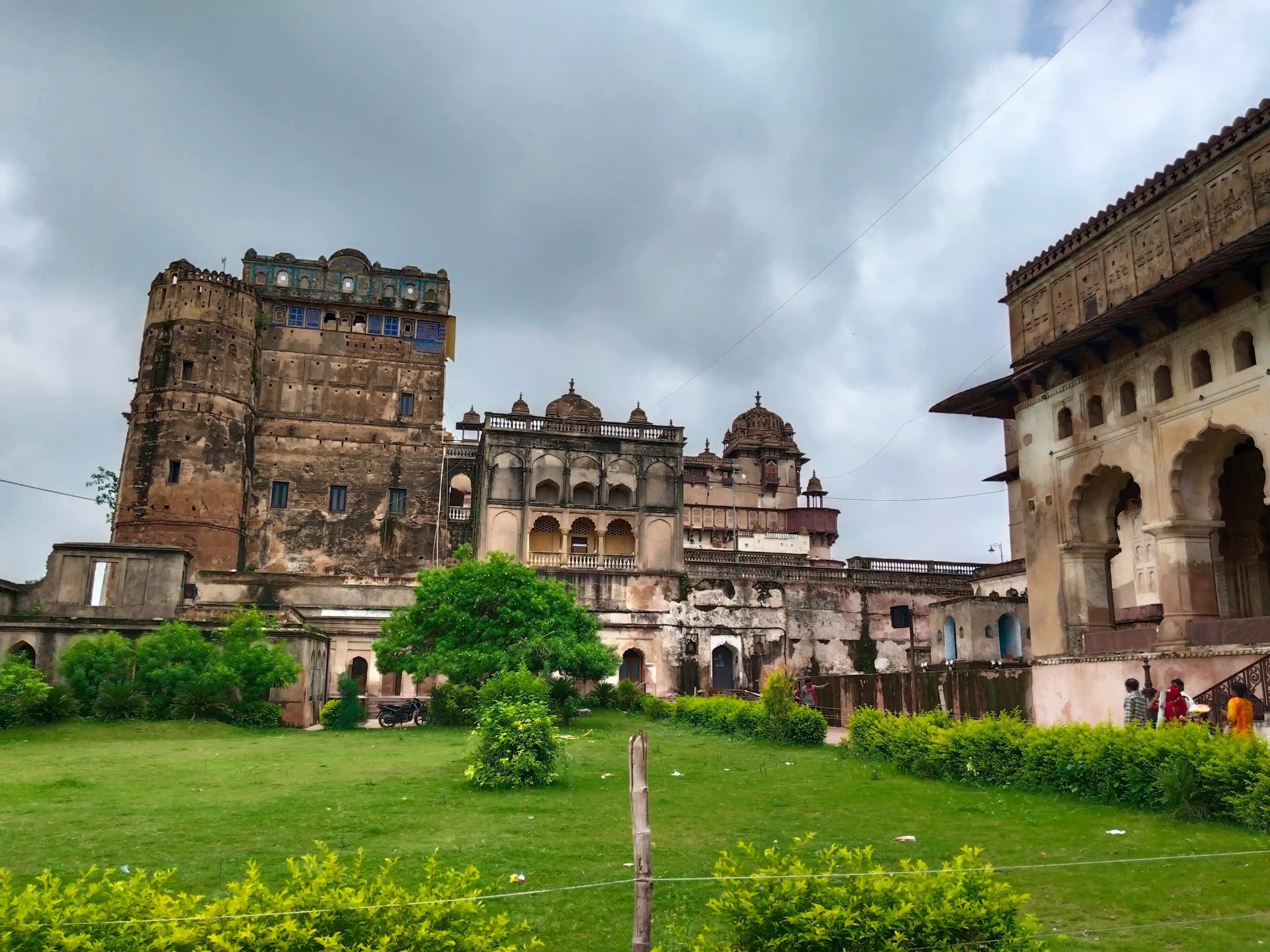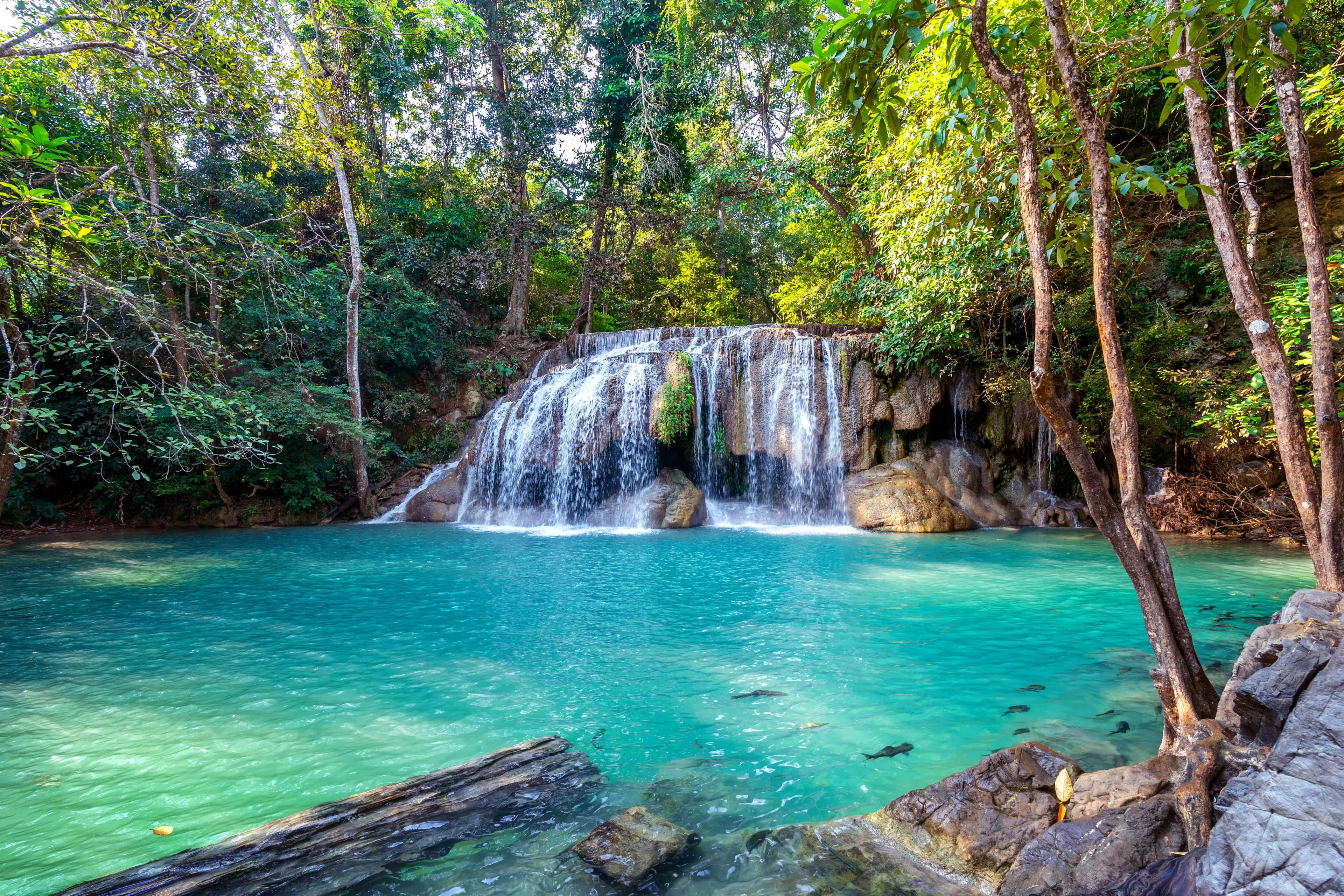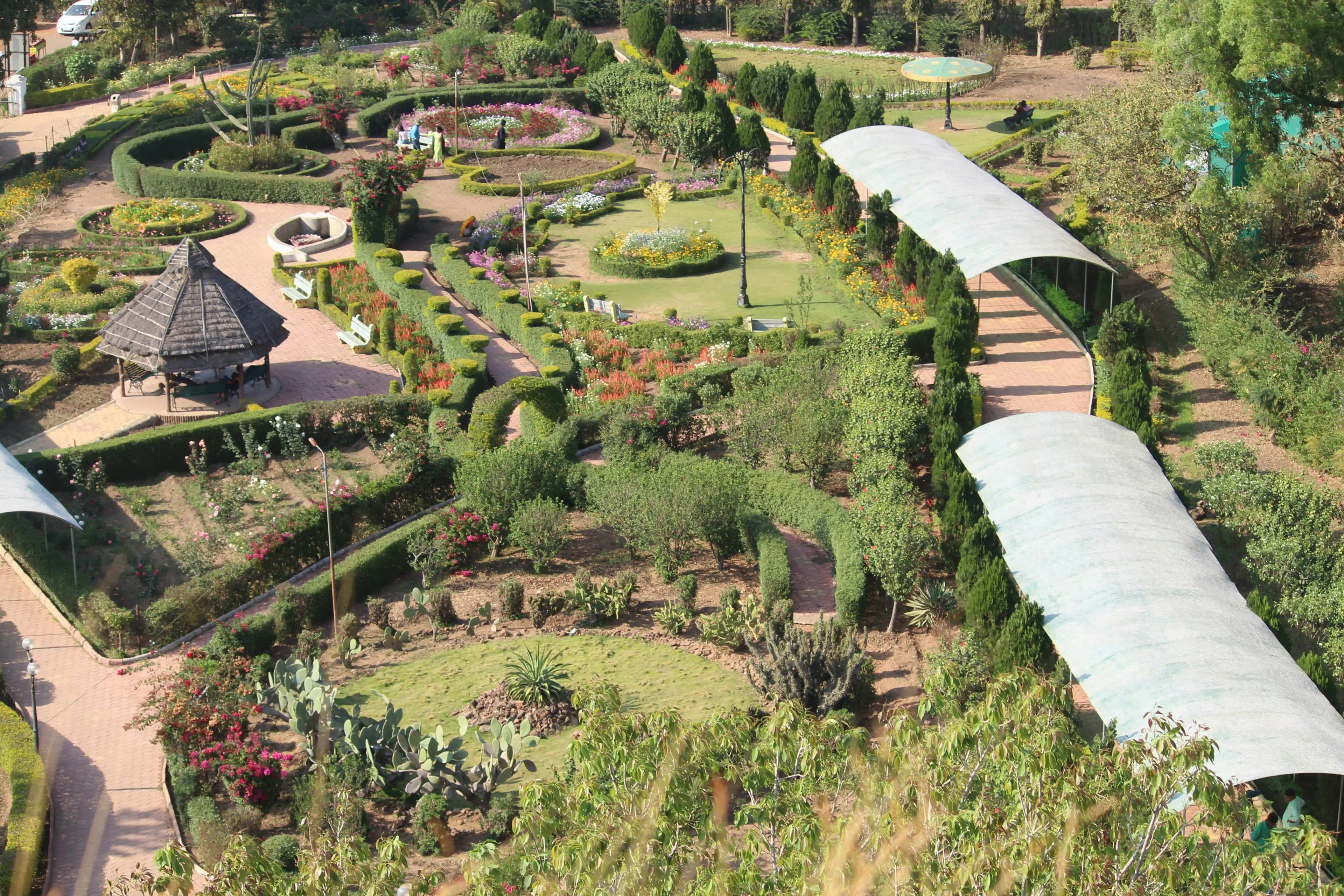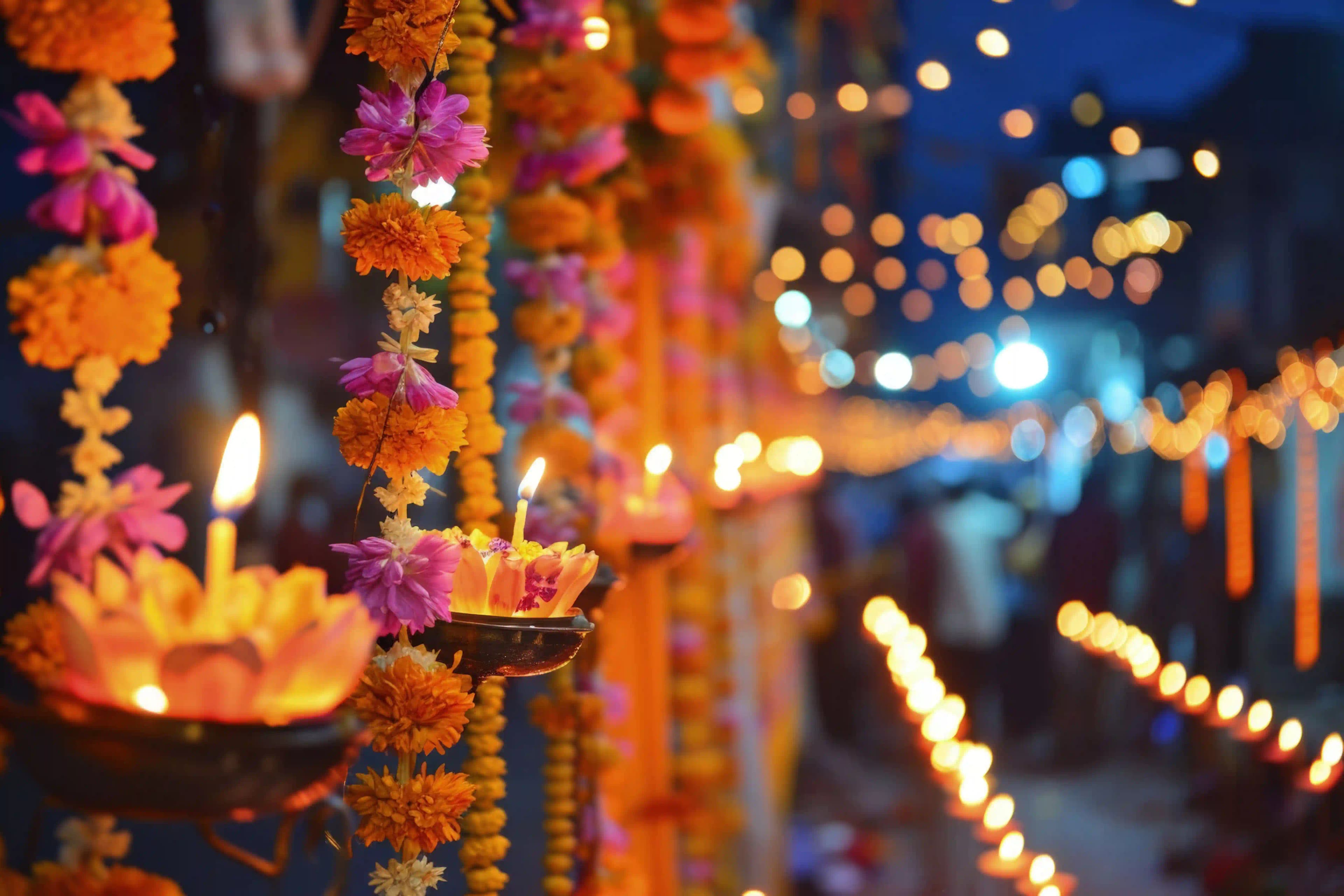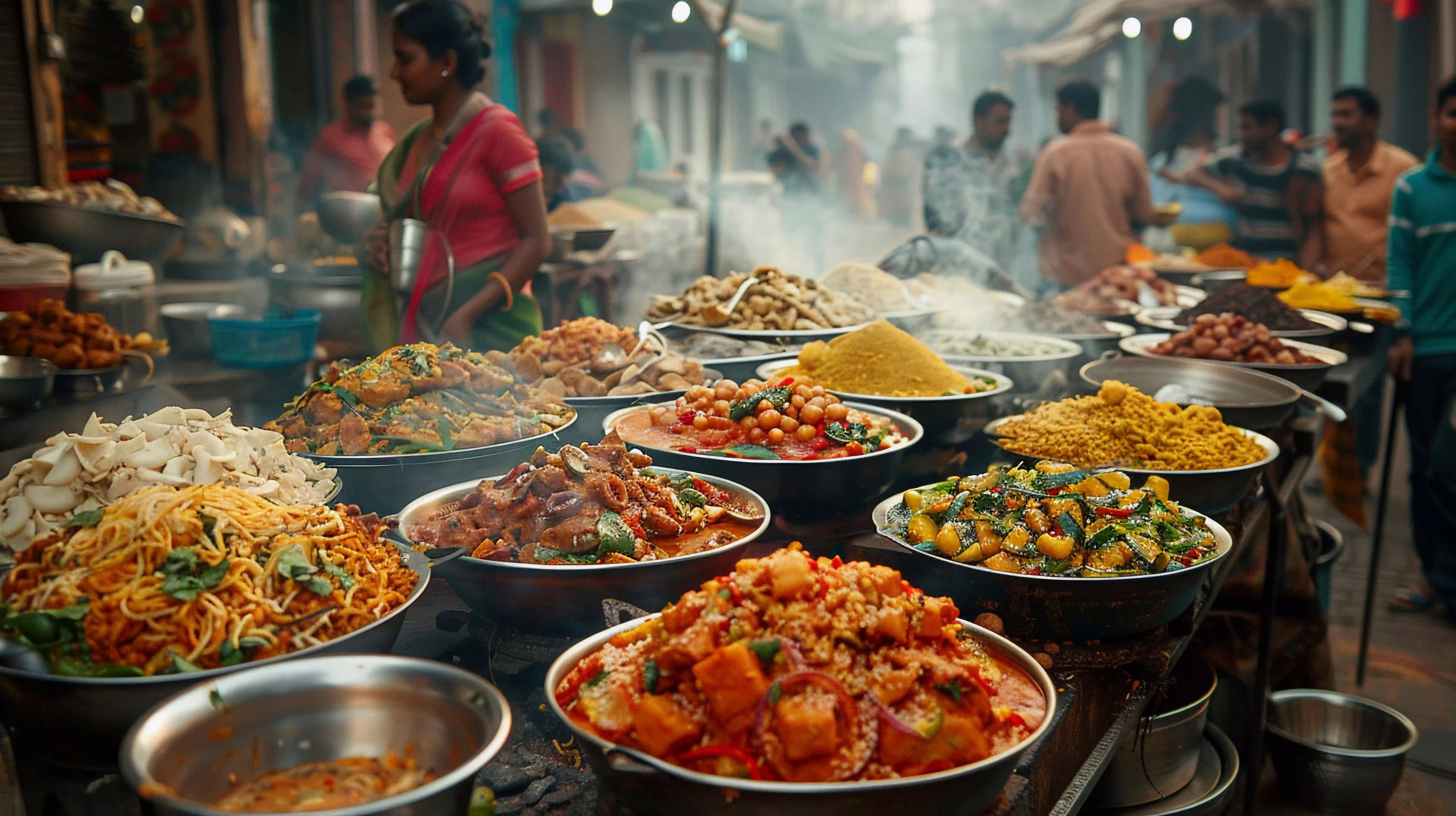Close your eyes and picture a city where every street has a story to tell. Auto-rickshaws drive through busy markets, and the horns of the rickshaws mix with the sounds of classical music coming from the old buildings. This is Gwalior, the city of music, the city of kings, located at the heart of India. The brave and beautiful Gwalior Fort watches over the whole city from the top of a big hill.
This fort has remained strong and tall for hundreds of years, like a king sitting on his throne. It has seen many great battles, hosted notable kings and queens, and kept many secrets safe behind its huge walls. It isn't just made of red sandstone; it is made of history itself. Are you ready to climb up the hill and discover its mysteries? This guide is your map to everything you need to know before planning a visit to the incredible Gwalior Fort Madhya Pradesh! We will be covering the best time to visit, things to do, and much more. Let's go on an adventure!
History of Gwalior Fort
The story of the Gwalior Fort is like a thrilling book with many chapters, each written by a different ruler. There are a lot of brave kings, wise saints, and amazing buildings in the history of Gwalior Fort. But do you know who made the Gwalior Fort Madhya Pradesh? It all begins with a story!
A king named Suraj Sen got lost in a forest a very long time ago. He had a dangerous disease called leprosy that made him sick. A wise saint named Gwalipa gave him water from a special pond. The king was healed by drinking the pond water given by the saint! King Suraj Sen built a fort and named it after Gwalipa to honour the saint. That's how Gwalior got its name.
But the big fort we see now didn't get built in one day. Many powerful kings and emperors added more palaces, temples, and gates to it over the course of hundreds of years. Raja Man Singh Tomar, the Rajput king, was the most famous of them all. He built the beautiful Man Mandir Palace about 500 years ago. Today, it is the most beautiful part of the fort. Mughal emperors like Babur and Akbar also ruled from here after him. This fort was once home to the great Sikh Guru, Guru Hargobind Sahib Ji. Later, the British, the Scindias, and the Marathas took over this strong fort. That's what makes the Gwalior Fort so unique!
Gwalior Fort Timings and Entry Fee
The beautiful Gwalior Fort is open every day from 6:00 AM to 5:30 PM. It usually takes 3 to 4 hours to see all of its grand palaces, old temples, and historic buildings. The entry fee is very reasonable for everyone to be able to pay for: Indian citizens pay ₹75, foreign tourists pay ₹250, and kids under 15 are allowed to enter for free. The light and sound show that happens in the evenings is amazing. It brings the fort's history to life with stories in Hindi (7:30 PM) and English (8:30 PM), each lasting 45 minutes. Indian adults pay ₹100 for a ticket, children pay ₹50, and foreign visitors pay ₹250. The fort looks amazing after sunset, and the night view is something you shouldn't miss.
Best Time to Visit Gwalior Fort
Think about how you would like to plan the best day out for an adventure. You'd want the weather to be just right for exploring, with sunny skies and a light breeze, right? Picking the best time to go to Gwalior Fort Madhya Pradesh, is like picking the right ingredient for a great day! The right time of year and day can make a great trip into an unforgettable one. You won't have to worry about anything while you walk around, take great pictures, and learn about the history. Let's take a look:
Winter Season (October to March): This is the absolute best time to visit! The weather becomes cool and pleasant, like a gentle hug from Mother Nature. The temperature is just right at that time, not too hot and not too cold, thereby making it ideal for walking around the massive fort, climbing steps, and discovering hidden corners. This is the ultimate time for a fun, family-friendly adventure.
Summer Season (April to June): During these months, the sun can be very intense, and temperatures rise quite high. If you plan to visit during this season, come prepared like a smart explorer: carry a water bottle, wear a hat or cap, apply enough sunscreen, and take plenty of breaks in the shade. Early mornings or late afternoons are better to avoid the peak heat.
Monsoon Season (July to September): The monsoon rains wash over the fort, turning everything lush and green. The surroundings look fresh and colourful. However, the ancient stone pathways and steps can become slippery. If you visit during this time, wear comfortable shoes and step carefully to avoid slipping. The rain can also sometimes play hide-and-seek, so carrying an umbrella might be a good idea!
How to reach Gwalior Fort
Planning your journey to the best places to visit in Madhya Pradesh, then Gwalior fort is the first option for anyone! Since the Gwalior Fort sits proudly on a high hill, figuring out how you'll get there is super important. Luckily, this grand old fort is very well-connected. Whether your family loves road trips, enjoys train rides, or prefers to fly, there's a perfect way for everyone to arrive. Knowing your options helps you choose the most fun and comfortable way to begin your exploration!
By Air:
Nearest Airport: Gwalior Airport (IATA: GWL), also known as Rajmata Vijaya Raje Scindia Air Terminal.
Gwalior Airport is connected to big cities like Delhi and Mumbai by regular flights. The fort is about 8 kilometers away from the airport. The ride from the airport to the base location of the fort is short and fun! It takes only about 20-30 minutes by taxi or car. You can easily book a cab from right outside the airport.
By Train:
Nearest Railway Station: Gwalior Junction
Gwalior Junction is a major railway station on the important Delhi-Chennai and Delhi-Mumbai routes. Trains from all over India, including cities like Agra, Jhansi, Delhi, and Bhopal, stop here. The fort is approximately 5 kilometers from the Gwalior Junction railway station. Once you get off the train, you will find many auto-rickshaws and taxis waiting outside. The ride to the fort takes about 15-20 minutes.
By Road:
Road travel is one of the fantastic ways to see the beautiful countryside! Gwalior has excellent, smooth roads connected by national highways. Its distance from Agra is approximately 118 km (about 3 hours drive), from Jhansi: 102 km (about 2.5 hours drive), from Delhi, approximately it is 321 km (about 5-6 hours drive). You can drive your own car or take a comfortable state-run or private bus. The bus will drop you off at the Gwalior bus stand, from where you can take a short auto-rickshaw ride to the fort.
Major Attractions Inside Gwalior Fort
If you want to do amazing things in Madhya Pradesh, you should definitely visit the amazing Gwalior Fort. This isn't just one building; it's a whole complex of beautiful palaces, old temples, and historic buildings, each with its own story. Every part of this fort promises a new adventure, from the detailed carvings that look like stone lace to the big palaces where kings used to live, the fort is complete in itself. Get ready to go back in time as we look at the most amazing places inside the huge Gwalior Fort that are waiting for you to explore:
1. Man Mandir Palace
The beautiful Man Mandir Palace is the main part of Gwalior Fort Madhya Pradesh. The Rajput king Raja Man Singh Tomar built this palace in the 15th century. It is famous for its beautiful blue, yellow, and green tile work that shows elephants, peacocks, and flowers in beautiful patterns. You can go inside and see the underground rooms where the royal family stayed chilled in the summer and where later Mughal emperors kept prisoners. As a work of Hindu architecture, the palace is a work of art. It gives us a fascinating look at how kings and queens lived during their era.
Location: Eastern side of the main fort complex
Timings: 6:00 AM to 5:30 PM (Open all days)
Entry Fee: Included in the main fort entry ticket
2. Saas Bahu Temple
This is one of the most beautifully carved temples in India. Built in the 9th century by King Mahipal of the Kachchhapaghata dynasty, it is dedicated to Lord Vishnu. The name "Sas Bahu" evolved from "Sahasra Bahu" (meaning 'a thousand arms', a form of Vishnu), though a popular legend says it was built for a queen (saas) and her daughter-in-law (bahu) who worshipped different gods. The larger temple is covered in incredibly detailed carvings of gods, goddesses, and mythical creatures, making it look like a dream of stones.
Location: Fort Campus, near the post office, Gwalior, Madhya Pradesh
Timings: 6:00 AM to 5:30 PM (Open all days)
Entry Fee: Included in the main fort entry ticket
3. Gwalior Fort Gurudwara (Gurudwara Data Bandi Chhor)
If you are looking for a historical places in Madhya Pradesh then Gwalior Fort Gurudwara is the sacred Sikh shrine that holds great historical importance. It marks the site where the sixth Sikh Guru, Guru Hargobind Sahib Ji, was kept in prison by the Mughal emperor Jahangir in the early 17th century. The Guru was finally released, and he insisted that 52 unjustly imprisoned Hindu kings be freed with him. The name "Bandi Chhor" means "Liberator of the Captives." It is a place of great peace and devotion.
Location: Within the fort complex, near the Urwai Gate
Timings: Open from early morning until evening
Entry Fee: Free
4. The Giant Jain Sculptures
Carved directly into the southern cliff face of the fort, these colossal statues of Jain Tirthankaras are a remarkable sight. Dating back to the 7th to 15th centuries, they represent some of the most important figures in Jainism. The largest statues are over 57 feet tall! They were created under the patronage of many kings and show the deep respect for Jainism in the region's history.
Location: Southern-facing rock of the fort
Timings: 6:00 AM to 5:30 PM (Open all days)
Entry Fee: Included in the main fort entry ticket
5. Gujari Mahal
King Man Singh Tomar built this palace as a token of love for his most loved queen, Mrignayani, who was a Gujar princess. While the external part of the mahal remains an excellent example of ancient architecture, the building is now used as an archaeological museum. Inside the mahal, you can find a priceless collection of artifacts, including Hindu and Jain sculptures, prehistoric tools, and a famous 1st-century statue of Shalbhanjika.
Location: At the foot of the fort, near the main approach road
Timings: 10:00 AM to 5:00 PM (Closed on Mondays and state holidays)
Entry Fee: Usually a small separate fee for the museum
6. Teli Ka Mandir
Teli Ka Mandir is the fort's tallest building, standing 100 feet tall. The building was built in the 8th or 9th century and has a unique style that combines South Indian (Dravidian) and North Indian (Nagara) styles. The roof is shaped like a barrel vault. It was originally a temple for Vishnu, but later it was used for Buddhist and Hindu worship. Therefore, this mandir shows how the fort has changed over time.
Location: Central courtyard of the main fort complex
Timings: 6:00 AM to 5:30 PM (Open all days)
Entry Fee: Included in the main fort entry ticket
Conclusion
You should definitely go to Gwalior Fort! There are so many cool things to see including something like a huge castle on a hill. You can see beautiful palaces, old temples, and huge statues. There is an interesting story from decades ago about every part of the fort. Whether you’re admiring the Gwalior Fort, Madhya Pradesh, night view lit up like a golden dream or stepping into the peaceful past at the ancient temples, this is an experience you and your family will remember forever. Come with your family and friends to see this wonderful fort. You will have so much fun and learn about history too.
